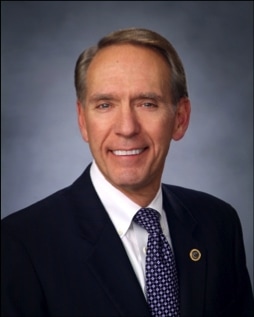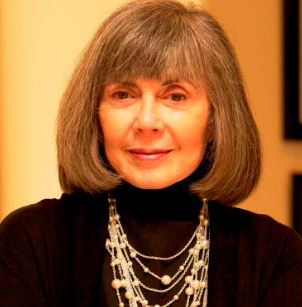Home » Posts tagged 'spirituality'
Tag Archives: spirituality
Freedom to be King of the Supermarket

The struggle for existence is in a sort of hopeful fatalism, of which current literature is full. The injustice of society, not the stinginess of nature, is the cause of the want and misery which we attribute to overpopulation. The new mouths which an increasing population calls into existence require no more food than the old ones, while the hands they bring with them can in the natural order of things produce more. The process is the results of forces which work slowly, steadily and remorselessly, for the elevation of man. War, slavery, tyranny, superstition, famine, and pestilence, the want and misery which fester in modern civilization, are the impelling cases which drive men on by eliminating poorer types and extending the higher; and hereditary transmission is the power by which advances are fixed, and past advances made the footing for new advances. The individual is the result of changes thus impressed upon and perpetuated through a long series of individuals, and the social organization takes its form from the individuals of which it is composed. Radical to a degree beyond anything which current radicalism conceives, since it anticipates a change in human nature itself, civilization holds that no change can avail, save these slow changes in men’s natures. #RandolphHarris 1 of 20

The prevailing view of civilization accounts neither for the failure of some peoples to progress, nor for the failure of others to maintain a level of civilization once achieved. History suggests that civilizations rise and fall in a wavelike rhythm. It is possible that each national or race of life has a stock of energy which it expends as the energy is dissipated the nation declines. America, many believe, is currently in a decline because of the immigration crisis, overpopulation, destruction of gender roles, the church, the nuclear family, inflation, low wages, high cost of housing and corruption. That obstacles which finally bring progress to a halt are raised by the course of progress are association and equality, and society is not threatened by the division and inequality it breeds. The seeds of the destruction of the existing order can be found in its own poverty; in its squalid cities which are breeding and welcoming in the barbarian hordes which might overwhelm it. As Artificial Intelligence puts a major strain on electric grids, civilization must either prepare itself for a new forward leap or plunge downward into a new barbarism. Each man must swim for himself in a crossing river, ignoring the fact that some have been artificially provided with corks and others artificially loaded with lead. #RandolphHarris 2 of 20

Human nature itself must have changed very much. Not all, but the conditions of human life have changed, and with them the motives of human action. As wonders of the cooperative order have unfolded, it has become clear that this change of conditions is centered about the abolition of strife. Selfishness was their only science, and in industrial production selfishness is suicide. The elimination of strife, by automating jobs and tasks, has only produced more strife. Competition, which is the instinct of selfishness, is another word for dissipation of energy, while combination is the secret of efficient production. The principle of the Brotherhood of Humanity is one of the eternal truths that govern the World’s progress on lines which distinguish huma nature from brute nature. The principle of competition is simply the application of the brutal law of the survival of the strongest and most cunning. Therefore, so long as competition continues to be the ruling factor in our technological system, the highest development of the individual cannot be reached, the loftiest aims of humanity cannot be realized. The final pleas for any form of brutality in these days is that it tends to the survival of the fittest; and very properly this plea has been advanced in favour of the system which is the sum of all brutalities. #RandolphHarris 3 of 20

If the richest were in fact the best, there would have been no social question, and disparities of condition would have been willingly endured; but the competitive system apparently causes the unfittest to survive, not in the sense that the rich are worse than the poor, but that the system encourages the worst in character of all classes. The difference between the animal and human economy will bear study as furnishing the best of ammunition for replying to the “survival of the fittest” against the argument of nationalism. Evolutionary biology does not provide a justification for competitive individualism. There is a healthy emulation that will go on in a cooperative commonwealth and the unhealthy competition of capitalism. The organic character of social life demands increasing centralization and management. Through capitalism, some American corporations and the government, through costs and fees, are gauging citizens, underpaying workers, and each year, redistributing billions of dollars of American wealth and tax money to other countries, instead of reinvesting in the American people and America. Conscious evolution is a far different thing from the unmodified natural evolution of the past, and human intervention must play an increasingly important role in development. #RandolphHarris 4 of 20

The rise of trusts is paving the way for socialism, and the continuing “trustification” of industry is a proof of the superiority of combination over competition. The combination is the inevitable next step in social evolution, leaving them a choice between monopolized capitalism and a collectivized social order. If you wish to enjoy art, you must be an artistically cultivated person; if you wish to influence other people, you must be a person who really has a stimulating and encouraging effect upon others. Every one of your relations to man and to nature must be specific expressions, corresponding to the object of your will, of your real individual life. If you love without evoking love in return, id est, if you are not able, by the manifestation of yourself as a loving person, to make yourself a beloved person, then your love is impotent and a misfortune. The aim of the activation of man in the technological society requires another step as important and as difficult as replacement of the alienated bureaucratic structure by methods of humanist management. Again, I wanted to ask the reader to take the following proposals only as illustrations of desirable possibilities, not as definite aims and methods. Up to the present, our industrial system has followed the principle that anything man wants or desires is to be accepted indiscriminately, and that is possible society should satisfy all of man’s desires. #RandolphHarris 5 of 20

We make a few exceptions to this principle; for instance, certain laws which restrict or even forbid the use of liquor regardless of a person’s desire to drink as much as he likes; stronger ones against the taking of drugs, where even the possession of drugs like marijuana (the degree of whose harmfulness is still under debate) is penalized severely; we also restrict the sale and exhibition of so-called pornography. Furthermore, our laws forbid the sale of harmful food under the Food and Drug Act. In these areas, there is consensus, crystallized in state and federal laws, that there are desires which are harmful to man, and which should not be fulfilled although a person craves for the satisfaction of these desires. While one can argue that so-called pornography does not constitute a real threat and, furthermore, the hidden lasciviousness of our advertisements are at least as effective in arousing cupidity of pleasures of the flesh as straight pornography would be, the principle is recognized that there are limits to the freedom of the satisfaction of subjective desires. Yet these restrictions are essentially based on only two principles: the concern for bodily harm, and the vestigial remnants of the Puritan morality. It is time we began to examine the whole problem of subjective needs and whether their existence is a sufficiently valid reason for their fulfillment; to question and examine the generally accepted principle of satisfying all needs—while never asking about their origins or effects. #RandolphHarris 6 of 20

In trying to find adequate solutions, we meet with two powerful obstacles. First, the interests of industry, whose imagination is fired by too many alienated men who cannot think of products which would help to make a human being more active rather than more passive. Besides this, industry knows that by advertising it can create needs and cravings which can be calculated in advance, so that there is little risk in losing profit if one continues the safe method of creating needs and selling the products which satisfy them. The other difficulty lies in a certain concept of freedom which gains ever-increasing importance. The most important freedom in the twenty-first century is the freedom to use and invest property in any form which promised profit. Since managers of enterprises were at the same time the owners, their own acquisitive motivations made them emphasize this freedom of the use and investment in capital. Because of inflation, many Americans do not own property—even though there are a relatively large number of people who own large fortunes. The average American is employed, and he is satisfied with relatively small savings, either in cash, stocks, bonds, or life insurance. For him, the freedom of investment of capital is a relatively minor issue; and even for most people who are able to buy stocks, this is a form of gambling in which they are counseled by investment funds. #RandolphHarris 7 of 20

However, the real feeling of freedom today lies in another sphere, in that of consumption. In this sphere, everybody except those who live a substandard existence experiences the freedom of the consumer. Here is an individual who is powerless to have any influence—beyond a marginal one—on the affairs of the state or the enterprise in which he is employed. He has a boss, and his boss has a boss, and the boss of his boss has a boss, and there are very few individuals left who do not have a boss and do not obey the program of the managerial machine—of which they are a part. However, what power does he have as a consumer? There are dozens of brands of cigarettes, toothpastes, soaps, deodorants, radios, social media networks, cellular phones, Smart TVs, movie and television stream services, etcetera, etcetera. And they all woo his favor. They are all there “for his pleasure.” He is free to favour the one against the other and he forgets that essentially there are no differences. This freedom to give his favours to his favourite commodity creates a sense of potency. The man who is impotent humanely becomes potent as a buyer and consumer. Can one make any attempt to restrict this sense of potency by restricting the freedom of choice in consumption? It seems reasonable to assume one can do so only under one condition and that is that the whole climate of society changes and permits man to become more active and interest in his individual social affairs, and hence less in need of that fake freedom to be king of the supermarket. #RandolphHarris 8 of 20

We are determined by forces outside of our conscious selves, and by passions and interests which direct us behind our backs. Inasmuch as this is the case, we are not free. However, we can emerge from this bondage and enlarge the realm of freedom by becoming fully aware of reality, and hence of necessity, by giving up illusions, and by transforming ourselves from somnambulistic, unfree, determined, dependent, passive persons into awakened, aware, active, independent ones. The aim of life is liberation from bondage, and the way to this aim is the overcoming of illusions and the full use of our active powers. Dr. Freud’s position is essentially the same; he spoke less of freedom versus bondage than of mental health versus mental sickness. He, too, saw that man is determined by objective factors (the libido and its fate) but he thought that man can overcome this determination by overcoming his illusions, by waking up to reality, and by becoming aware of what is real but unconscious. Dr. Freud’s principle as a therapist was that awareness of the unconscious is the way to the cure of mental illness. As a social philosopher he believed in the same principle: only if we become aware of reality and overcome our illusions can we attain the optimal strength to cope with life. Perhaps those who do not suffer from the neurosis will need no intoxicant to deaden it. They will, it is true, find themselves in a difficult situation. #RandolphHarris 9 of 20

They will have to admit to themselves the full extent of their helplessness and their insignificance in the machinery of the universe; they can no longer be the center of creation, no longer the object of tender care on the part of a beneficent providence. They will be in the same position as a child who has left the parental house where he was so warm and comfortable. However, surely infantilism is destined to be surmounted. Men cannot remain children forever; they must in the end go out into “hostile life.” We may call this “education to reality.” Our God, Logos, is perhaps not a very almighty one, and he may only be able to fulfill a small part of what his predecessors have promised. If we must acknowledge this, we shall accept it with resignation. We shall not on that account lose our interest in the World and in life…no, our science is no illusion. However, it would be to suppose that what science cannot give us we can get elsewhere. When I study my own, I discover that while many things can be quite well known in a general way, they cannot be accurately or permanently pinned down. I become less dogmatic, and at the same time more free, living with the uncertainty that is a reality of life. Through reading authors of many different periods, I notice how each has been conditioned by his times, and this leads me to seek out in which ways my own view is affected by times. #RandolphHarris 10 of 20

I notice where this is freeing and where it binds me, and then I can begin to cut the bonds, which are, I discover, not contemporary but a hangover from the past, prevalent but dying. I move, then, with what is truly contemporary, with what is appearing now—the living change, not the dying. I find authors whose views have changed in successive books, which tends to keep my mind more open about both of us. I discover that when I re-read a book out of my own interest, what is says to me the second time may be quite different from what it said the first time. This brings me closer to reality about myself and books. All this in itself has an effect on my interpersonal relations, apart from the fact that when I am ranging freely I am happy—not happy about, just happy—and that affects my interpersonal relations too. These facts to me are significant learning. They are basic, universal, applicable to any people, place and time. When I am aware of them, I am in touch with the unchanging reality of change. With this awareness first, then what I do in the ephemeral World of my own lifetime is more intelligent, including my relations with other people. At the same time, I am a more autonomous person, able to find out for myself, and with trust in my ability to find my way. That my way includes the help of others in no way diminishes my independence because I do the choosing for myself. #RandolphHarris 11 of 20

I accept what I can use at the time, what is meaningful to me. Even if I spent a lifetime doing it, then, all that I learn is linked together, inside me, with more connections than could be written down because new ones are constantly being made while I am writing. All of these connections are available to me through my inner computer, as I need them. One part of me is such a fantastic machine, contained in such a littler space and so easy to take with me, that it is idiotic to get excited about the feats of machines that are made by men. If we use them properly, they are convenient, and that is all. I must use my own machine properly too, by not interfering with it, because when it is interfered with it goes haywire. It does not seem to me that a problem is necessary for this kind of learning, although a problem certainly can stimulate me. However, perhaps I am using the word “problem” in a too limited way. Philosophy will create within him a disgust for evil, a disdain for what is ignoble, a taste for what is refined and beautiful, a yearning for what is true and real. It is not in the process of dying to self he is to become a man without feelings, but that he is to die to the lower phases of feeling. Indeed, such a victory can only be achieved by drawing the needed forces from the higher phases of feeling. In the World of values, the truth is the synthesis of opposites, as for instance the synthesis of optimism and pessimism. #RandolphHarris 12 of 20

One more word as to the technique of free association: it is essential to abstain from reasoning while associating. Reason has its place in analysis, and there is ample opportunity to use it—afterward. However, as already stressed, the very essence of free association is spontaneity. Hence the person who is attempting it should not try to arrive at a solution by figuring out. Assume, for instance, that you feel so fatigued and so limp that you would like to crawl into bed and pronounce yourself ill. You look out of a second story window and detect yourself thinking miserably that if you fell you would at most break an arm. This startles you. You had not known that you were desperate, even so desperate to want to die. Then you hear a podcast turned on above you, and you think with moderate irritation that you would like to shoot the fellow operating it. You conclude that there must be rage as well as despair behind your feeling ill. So far you have done a good job. You already feel less paralyzed, because if you are furious at something you may be able to find the reasons for it. However, now you start a frantic conscious search for what might have infuriated you. You go over all the incidents that occurred before you felt so tired. #RandolphHarris 13 of 20

It is possible that you will hit upon the provocation, but the probability is that all your conscious digging comes to nought—and that the real source will occur to you half an hour later, after you have become discouraged by the futility of your attempts and have given up the conscious search. As unproductive as such attempts to force a solution is the procedure of a person who, even while he lets his mind run freely, tries to get at the meaning of his associations by putting two and two together. Whatever prompts him to do so, whether it is impatience or a need to be brilliant or a fear of giving way to uncontrolled thoughts and feelings, this intrusion of reason is bound to disturb the relaxed condition necessary for free association. It is true that the meaning of an association may dawn upon him spontaneously. Clare’s series of associations ending with the text of religious song is a good example of this: here her associations showed an increasing degree of lucidity although no conscious effort had been made to understand them. The two processes—self-expression and understanding—may sometimes coincide. However, as far as conscious efforts are concerned, they should be kept strictly separate. The quest remains unfinished and unsuccessful so long as it lacks this element of rich feeling, so long as it has not become a warm devotion. The Quest is not all a matter of psychological readjustment, of severe self-improvement. Man is not just a character to be remolded. Deep reverential feelings have also to be cultivated. #RandolphHarris 14 of 20

The quest for health and happiness has existed as long as people have been able to reflect upon the human condition. American philosophers concerned themselves many centuries ago with the problem of how human beings could liberate themselves from cramping habits to attain a happier, freer existence. Some of those who attained “liberation and enlightenment” became teachers, seeking to help others attain the same degree of emancipation from stifling life. There is a parallel between the state of enlightenment and the state of healthy personality. Neurotic suffering is a result of separating oneself too radially from nature, from other humans, and from one’s own organism. Most people equate their very identity with a concept of themselves instead of with their whole being. In the process of separating self, one loses contact with the flow or process of life, which is essentially spontaneous. People replace spontaneity in their experience, thinking, and behaviour with efforts to make them happen. Liberation (and, by implication, healthy personality) occurs when a person can adopt the attitude of “letting be,” or “letting happen.” That is, one “lets go” the conscious, controlling ego, or self, and experiences life in somewhat the following fashion: instead of a person’s “trying” to swim, “liberated” swimming is experiences as “swimming is permitted to happen” or “swimming is going on.” #RandolphHarris 15 of 20

When a person stops trying to make things happen, when one stops truing to make oneself behave in some desired way, it is argued that the desired events or behaviours will spontaneously happen. Learning theorists, surprisingly, offer a similar argument for some skill learning. Healthy personality entails liberation from effortful constraint on, and control over spontaneous thinking, feeling, and action; it entails attainment of an attitude of “letting oneself be” and letting other and nature “be.” His life will be extraordinarily enriched, and not bleakly impoverished, by discovering the higher relationship that is possible between men and women that which begins and ends with the flesh. Intense concentrated feeling may fill a man with self-destructive or murderous antagonism but lead another into self-realization—depending upon the thoughts and acts which flow from him at its bidding. First comes the capacity to recognize these higher feelings; then to understand them for what they are; next to appreciate their intrinsic worth; and finally, to give oneself up to them entirely. The real philosopher feels what he knows: it is not a dry intellectual experience alone but a living one. Why become resentful and bitter at the loss? Why not be grateful at having had the good fortune at all, and for possessing memory of it that cannot be lost? Why not regard it as enough to have experienced such happiness, even for a little time, when in the chances of life, it could have passed you by altogether? Why not receive the gifts of destiny humbly without trying to own them with a tight vampire-like grip? #RandolphHarris 16 of 20

The higher human feelings such as kindness and sympathy, patience and tolerance must nurtured. This species called Man has shown its finer possibilities in the kindness of Jesus as the Christ, the compassion of Dr. Freud, the love of Saint Aldric Bishop of Le Mans, the leadership of King Rudolf I of Germany, the skill of Michelangelo, and the design of William Randolph Hearst, and the craftmanship of Sarah L. Winchester. Man will not lose the capacity to feel; in this he will still be like other men: but it will be free from false sentimentality and debased animality. He who enters upon this quest will have to revise his scale of values. Experiences which he formerly thought bad, because they were unpleasant, may now be thought good, because they are educative or because they reveal hitherto obscured weaknesses. The Sacramento Fire Department has invested millions of dollars into research and development. They have years of hard work dedicated to their success. Also, they have proven themselves to save the lives of those individuals who place their lives in the hands of the skilled heroes who use the concept. Their purpose is to save your life, and the lives of their fellow firefighters, and the community they serve and who trusts them wholly. #RandolphHarris 17 of 20

“We trained on the job over the course of one summer, in the mountains of Santa Clara County. We walked at least eight hundred miles, mostly at a forty-five-degree angle, fighting brush fires. We did an hour of calisthenics every day, including a twenty-foot rope climb without using your feet. It’s very hot there in the summer. We were always learning things, always sweating. The first forest fire we had was real hard and lasted a few days. We ran out of water and had to pace ourselves. The mountains have a lot of tall trees, mostly coast redwoods, various kinds of brush, and dry grass. A fire will burn sixteen and a half times faster uphill than down. It preheats, spreads, and has a convection column that will carry embers clear across a canyon and start a fire on the other side. It darkens the sky, and it’s just a big hellstorm that can cover hundreds of thousands of acres. When we get trapped by the fire, we have aluminum shields we use. They fold into a packet about eighteen inches long, three inches thick, and about eight inches wide that we wear around our waist. Unfolded, it looks like a big baked potato about six feet long and comes to a triangular top like a tent. You lie inside it, and in each corner there’s a strap. You hold the straps down with your feet and your hands, and you dig a hole where your face will go and fill it with water, if you have any, and put a wet cloth over your face. #RandolphHarris 18 of 20

“You usually face the fire, as it’s making headway toward you, because the wind is going to be blowing from the fire toward you. That way, you can put your head down and hold the thing down with your hands more securely. Facing the other way, you have more of a chance of taking heated gases into the tent. In my first forest fire, there were about three hundred of us in a big field that formed a natural firebreak. We expected a wind change that would change the direction of the fire, and we couldn’t run away from it. So we gathered there and waited for the fire to pass over. We didn’t have to use the shields on that occasion, but when the fire passed over it involved some big electric towers and there were lots of explosions. It was a pretty awakening experience. I didn’t know what was going to happen, because it was the first time I had ever been in that situation. That time, we were protected by the clearing. But when you use the aluminum shield, the heat from outside isn’t usually the main problem. The shield will sustain a pretty good temperature, but you could have a burning tree fall on you. In the Sacramento Fire Department, I’ve taken a lot of classes and furthered my education as much as I can. I’m an emergency medical technician, and most of our calls are medical, having to do with accidents and heart attacks. #RandolphHarris 19 of 20

“We deal with human emotions. It’s given me an opportunity to pursue my medical education. In our drills we learn a lot about hazardous materials, different aspects of fighting fire, ventilation. I have an AA from San Jouse City College, and they equate our first year in the fire department to about twelve units of college. We have to know all 1,500 miles of streets in town, learn our rules and regulations, how to use our equipment safely. We have ongoing classes and can sign up for classes ordered by the state. For instance, I recently came back from a heavy rope rescue class, bring people up cliffs and across rivers, dealing with earthquake type emergencies, how to shore up a building that’s falling down. It’s a real concentrated time for us.” Aesthetic appreciation, the feeling of delight in art, is not enough by itself to bring humanity into the perception of reality, that is, into truth. Artistic feeling, even poetic emotion, is not less exempt from the need of being equilibrated by reason than other functions of man’s nature. Please raise your children to love America, love God and Jesus Christ, to respect law and order, and practice the art of forgiveness. You can help save lives by dontating to the Sacramento Fire Department. I pledge allegiance to the flag of the United States of America, and to the republic, for which it stands, one nation, under God, indivisible with liberty and justice for all. #RandolphHarris 20 of 20

The Winchester Mystery House

Mrs. Winchester’s daughter died six weeks after she was born. In 1888, Mrs. Winchester was awakened, and she saw the apparition of a little girl between her curtain and her pillow, who told her she was her daughter, and that she was happy. The next day, Mrs. Winchester desired that the chaplain might be called to read prayers, and when prayers were ended, she played a song on the piano so melodiously that her music-master, who was then there, admired at it.

Please come and enjoy a delicious meal in Sarah’s Café, stroll along the paths of the beautiful Victorian gardens, and wonder through the miles of hallways in the World’s most mysterious mansion. For further information about tours, including group tours, weddings, school events, birthday party packages, facility rentals, and special events please visit the website: https://winchestermysteryhouse.com/

Please visit the online giftshop, and purchase a gift for friends and relatives as well as a special memento of The Winchester Mystery House. A variety of souvenirs and gifts are available to purchase. https://shopwinchestermysteryhouse.com/
Happy Cultivation of Life’s Finest Feelings

The proper cultivation and refinement of feeling is necessary for the philosophic path, but this must not be confused with mere emotionalism. The former lifts him to higher and higher levels while the latter keeps him pinned down to egoism. The former gives him the right kind of inner experience, but the latter often deceives him. It is right to rule the passions and lower emotions by reasoned thinking, but reason itself must be companioned by the higher and nobler emotions or it will be unbalanced. If we would get him to act rights, as man’s impulses to action come mainly from his feelings, hence it is necessary to re-educate his feelings. There are three kinds of feelings. The lowest is passional. The highest is intuitional. Between them lies the emotional. It is not emotion that philosophy asks us to triumph over but the lower emotions. On the contrary, it asks us to cherish and cultivate the higher ones. It is not feeling that is to be ruled sternly by reason but the blind animal instincts and ignorant human self-seeking. When feeling is purified and disciplined, exalted and ennobled, depersonalized and instructed, it becomes the genuine expression of philosophical living. The heart must also acknowledge the truth of these sacred tenets, for then only can the will apply it in common everyday life. #RandolphHarris 1 of 20

Those who think the philosophic life is one of dark negation and dull privation, of sour life-denial and emotional refrigeration, are much mistaken. Rather it is the happy cultivation of Life’s finest feelings. The hardest thing in the emotional life of the aspirant is to tear himself away from his own past. Yet in his capacity to do this lies his capacity to gain newer and fresher ideals, motives, habits, and powers. Through this effort, he may find new patterns for living and re-educate himself psychologically. However, it is not all his ideas which govern man’s life. Only those are decisive which are breathed and animated by his feelings, only they prompt him to action. Hence, a merely intellectual acceptance of these teachings, although good, does not suffice alone. The aspirant needs to rise above his emotional self, without rising above the capacity to feel, and to govern it by reason, will, and intuition. Sentimentality is a disease. The sooner the aspirant is cured of it, the quicker he will progress. The idea that perfectly harmonious human relations can be established between human beings still dominated by egoism is a delusional one. Even where it seems to have been established, the true situation has been covered by romantic myth. It is possible to attain a stoic impassivity where the man dies to disturbing or disquieting emotions and lives only in his finer ones, where the approbation of others will no longer excite him or the criticism by others hurt him, where the cravings and fears, the passions and griefs of ordinary and everyday human reactions are lacking. However, in their place he will be sensible to the noblest, the most refined feelings. #RandolphHarris 2 of 20

The “heart” is the central abode of human feeling, the symbolic reminder that the “head” or cold, dry intellect is not enough to touch the reality of Spirit. There is one relationship which takes precedence over all others. It is the relationship with the Overself. A wrong relationship with the Overself must inevitably lead to a wrong relationship with men. We are not called upon to renounce our human affections, our Earthly ties, as the ascetics demand, but we are called upon to liberate our love from its egoism. He is indeed free who is no longer liable to be tossed about by emotional storms, whose mind has become so steadied in the impersonal Truth that his personal feelings shape themselves in accord with it. If, and, when we can reconcile our feelings with the hard, sharp truths of philosophy, we shall then find the secret of peace. If binding natural laws were conceived to govern economic behaviour, it would be futile to urge employers to obey the promptings of heir Christian conscience and deal more generously with heir men. Expressing a desire for the growth of trade unions to balance large industrial combinations, Washington Gladden hoped that arbitration would supersede strife as the means of settlement. The principle of competition, the survival of the fittest, is the law of plants and brutes and brutish men, but it is not the highest law of civilized society. The higher principle of goodwill, of mutual help, begins to operate in the social order, and the struggle for existence disappears with the progress of the race. #RandolphHarris 3 of 20

To assume placidly that competition is the law of life and development is the fatal mistake of the social and economic sciences is the most common counterbalance to the competitive principle, in the minds of Christian leaders and the principle of Christian ethics and the dicta of the Christian conscience. The Sermon on the Mount is the science of society. However, as we welcome in the natural process of fruition for our belief in the limitations of competition as a rule of human life, we find a foundation in the natural process of evolution. As the social gospel developed, it became increasingly cordial to municipal socialism or public regulation of basic industries; this could be seen in the writings of many who had the conventional objections to socialism. To the growing solidaristic trend in American thought the social gospel contributed heavily, for its lectures were heard by thousands, its books read by hundreds of thousands, and incalculable numbers joined its organization or attended its earnest conferences. A current of criticism frequently neglected and underrated by historians of American social literature, it supplied several religious bodies with a lasting reform orientation, and paved the way for all socially-minded Protestant movement of a later day. Not the least of its accomplishments was to break ground for the Progressive era. #RandolphHarris 4 of 20

Returning now from the problems of politics and economics to those of culture, we find that the change must be a similar one: from passive consumer culture to active, participant culture. This is not the place to go into details, but most readers will understand the difference between, for example, spectator art (like spectator sports) and active art, expressed in little theater groups, dancing, music, reading, and other forms. The very same question which exists regarding spectator art versus active art applies to the sphere of teaching. Our educational system, whose façade is so impressive according to the number of students who go to college, is unimpressive in quality. Education has deteriorated to a tool for social advancement or, at best, into the use of knowledge for the practical application to the “food gathering” sector of human life. Even our teaching in liberal arts—while not done in the authoritarian style of the French system—is dispensed in an alienated and cerebral form. No wonder that the best minds of our college students are literally “fed up” because they are fed, not stimulated. They are dissatisfied with the intellectual fare they get in most—although fortunately not in all—instances, and in this mood, tend to discard all traditional writings, values, and ideas. It is futile simply to complain about this fact. #RandolphHarris 5 of 20

One must change its conditions, and this change can only if the split between emotional experience and thought is replaced by a new unity of heart and mind. This is not done by the method of reading the hundred great books—which is conventional and unimaginative. It can only be accomplished if the teachers themselves cease being bureaucrats hiding their own lack of aliveness behind their role of bureaucratic dispensers of knowledge; if they become—in a word, by Tolstoy—“the codisciples of their students.” If the student does not become aware of the relevance of problems of philosophy, psychology, sociology, history, and anthropology to his own personal life and the life of his society, only the least gifted ones will pay attention to their courses. The result is that the apparent richness of our educational endeavour becomes an empty front which conceals a deep lack of response to the best cultural achievements of civilized history. The demands of students all over the World for greater participation in the administration of the universities and formulation of the curricula are only the more superficial symptoms of the demand for a different kind of education. If the educational bureaucracy does not understand this message, it will lose the respect which it receives from students and eventually that from the rest of the population. #RandolphHarris 6 of 20

On the other hand, if it becomes “vulnerable,” open and responsive to the interests of the students, it will sense the satisfaction and joy which meaningful activity carries with it as its reward. Marx expressed the nature of the nonbureaucratic influence over people succinctly in this way: “Let us assume man to be man, and his relationship to the World to be a human one. Then love can only be exchanged for love, trust for trust, etcetera. This humanism of education is, of course, not only that of higher education, but it starts with kindergarten and primary school. That this method can be applied even in the alphabetization of poor peasants and slum dwellers has been shown in the very successful methods of alphabetization devised and applied by Professor P. Freire in Brazil and now in Chile. I urge you not to get stuck in the consideration of the merits of the detailed proposals. American democracy must be strengthened and revitalized or it will wither away. It cannot remain static. While Marx already used the term “repression (Verdraengung) of the ordinary natural desires” in the German Ideology, Rosa Luxemburg, one of the most brilliant Marxists in the pre-1914 period, expressed the Marxist theory of the determining effect of historical process on man in straight psychoanalytic terminology. “The unconscious,” she wrote, “comes before the conscious. The logic of the historic process comes before the subjective logic of the human beings who participate in the historic process.” #RandolphHarris 7 of 20

This formulation expression the Marxian thought in full clarity. Man’s conscious, that is, his “subjective process,” is determined by “the logic of the historic process,” which R. Luxemburg equates with the “unconscious.” At this point, the Freudian and the Marxian “unconscious” may seem not to denote more than a common word. Only if we pursue Marx’s ideas on this problem further shall we discover that there is more common ground in their respective theories, even though they are by no means identical. Marx has given a good deal of thought to the role of consciousness in the life of the individual in a passage which precedes the one just quoted where he uses the word “repression.” He speaks about the fact that it is nonsense if one believes “that one could satisfy one passion, separate it from all the others, without satisfying oneself, the whole living individual. If this passion assumes an abstract, separate character, hence if the satisfaction of the individual occurs as the satisfaction of a single passions…the reason is not to be found in consciousness, but in being; not in thinking, but in living; it is to be found in the empirical development and self-expression of the individual, which, in turn, depends on the conditions of the World in which he lives. (die wiederum von der Weltverhaltnissen abhangt.)” #RandolphHarris 8 of 20

In this passage, Marx establishes the polarity between thinking and living which is parallel to that between consciousness and being. The social constellation of which he spoke before molds, so he says here, the being of the individual and thus, indirectly, his thinking. (The passage also is interesting because Marx develops here a most significant idea on a problem of psychopathology. If man satisfies only one aliened passion, he, the total man, remains unsatisfied; he is, as we would say today, neurotic, precisely because he has become the slave of the one alienated passion and has lost the experience of himself as a total and alive person.) Marx, like Dr. Freud, believed that man’s consciousness is mostly “false consciousness.” Man believes that his thoughts are authentic and the product of his thinking activity whole they are determined by the objective forces which work behind his back; in Dr. Freud’s theory these objective forces represent physiological and biological needs, in Marx’s theory they represent the social and economic historical forces which determine the being and thus indirectly the consciousness of the individual. Let us think of an example: The industrial method of production as it has developed in the last decades is based on the existence of large, centralized enterprises which are controlled by a managerial elite, and in which hundreds of thousands of workers and clerks work together, smoothly and without friction. #RandolphHarris 9 of 20

This bureaucratic industrial system shapes the character of the bureaucrats as well as that of the workers. It also shapes their thoughts. The bureaucrat is conservative and adverse to taking risks. His main desire is to advance, and he can best do so by avoiding risky decisions and by allowing himself to be led by an interest in the proper functioning of the organization as his guiding principle. The workers and clerks, on their side, tend to feel satisfied in being part of the Organization provided their material and psychological rewards are sufficient to justify this. Their own trade union organizations resemble in many ways that of their industry: large-scale organizations, bureaucratic and well-paid leadership, little active participation of the individual member. The development of large-scale centralized government and armed services, both of which follow the same principles which guide the industrial corporations. It is an ironical fact that those conservatives who are opposed to big government (or at least pretend to be) are usually not opposed to bib business or to big military establishments. This type of social organization leads to the formation of elites, the business, government, and military elites and, to a degree, to the trade union elites. This business, government, and military elites are closely interwoven in personnel, in attitudes, and in ways of thinking. #RandolphHarris 10 of 20

Despite the political and social differences between the “capitalist” countries and the “communist” Soviet Union, the way of feeling and thinking among their respective elites is similar, precisely because the basic mode of production is similar. The power elites are the product of a specific way of production and social organization and, hence, that their existence confirms the basic Marxian assumption, rather than contradicts it. Military and political determinism are equally valid assumptions. I believe these elites and their role can be best understood precisely from the standpoint of the Marxian model. The consciousness of the members of the elites is a product of their social existence. They consider their way of organization and the values that are implied in it as being in “the best interests of man,” they have a picture of human nature which makes this assumption plausible, they are hostile to any idea or system which questions or endangers their own system; if they feel that their organizations are threatened by it, they are against disarmament, they are suspicious and hostile of a system in which their class has been replaced by a different and new class of managers. Consciously, they honestly believe that they are motivated by patriotic concern for their country, duty, moral, and political principles, and so on. #RandolphHarris 11 of 20

The elites on both sides are equally caught in thought and ideas which follow from the nature of their conscious thoughts. Precisely because they are sincere, and because they are not aware of the real motivations behind their thoughts, it is difficult for them to change their minds. These people are not driven by an overwhelming greed for power, money, or prestige. To be sure, such motives exist too; but the people in whom this is the all-consuming motive are the exception rather than the rule. Personally the members of all the elites would be just as willing to make sacrifices and to renounce certain advantages as anybody else. The motivating factor is that their social function forms their consciousness, and hence their conviction that they are right, that their aims are justified and, in fact, beyond doubt. This explains also another and very puzzling phenomenon. We see that the elites of two great blocs are on a collision course and that there are great difficulties in coming to an arrangement which will secure peace. There is no doubt that nuclear war would man the death of most members of the elite, of most their families, and the destruction of most of their organizations. If they were driven mainly by lust for money and power, how could one understand that this greed would not yield to the fear of death, except in the case of exceptionally neurotic individuals? The point lies precisely in the difficulty to change their viewpoint. Because to them, theirs is the rational, decent, honourable way of thinking—and if the nuclear holocaust will destroy everybody—it cannot be helped since there is no other course of action besides that of “reason,” “decency,” and “honour.” #RandolphHarris 12 of 20

An academic course has definite boundaries: even if I learn everything within them, I cannot go beyond them, and when I have completed the course I feel that I “know.” When I am studying on my own, there are no such boundaries. I range wherever my interests take me, into the disapproved as well as the approved, instead of being confined to texts and other reading selected for me by someone else. In this way, I gain a perspective that makes me a more reasonable person, more in accord with reality. I become aware of many divergent opinions and my mind is more flexible as I find my own continuing way through them. The continuing happens because this is not a course, with the end arbitrarily decided by someone else. There is no end. My awareness of this changes my behaviour. Relatedness (otherwise known as “a broad liberal background”) comes about through one field moving me into another, not through certain things being put together and related for me. Within myself, this relatedness is vaster and more sweeping than anything that can be put in books or taught to me by someone else. The space within me is prodigious. A person can look into himself and discover that—and discover that this space shrinks when I have taken in too much without time to digest it. Then I become like the Navajos who say that “there is no more room in the head.” #RandolphHarris 13 of 20

The process of free association, of frank and unreserved self-expression, is the starting point and continuous basis of all analytic work-self-analysis as well as professional analysis—but it is not at all easy of achievement. It might be thought that this process is easier when working alone, for then there is no one who may appear to misunderstand, criticize, intrude, or retaliate; besides, it is not so humiliating to express to oneself those things of which one may be ashamed. To some extent this is true, although it is also true that an outsider, by the very fact of his listening, provides stimulation and encouragement. However, there is no doubt whatever that whether one is working alone or with an analyst the greatest obstacles to free expression are always within oneself. One is so anxious to ignore certain factors, and to maintain one’s image of oneself, that alone or not alone one can hope only to approximate the ideal of free associations. If he skips or obliterates any thought or feeling that arises, in view of these difficulties, the person who is working alone should remind himself from time to time that he acts against his true self-interest. Also, he should remember that the responsibility is entirely his own: there is only himself to guess a missing link or inquire about a gap left open. #RandolphHarris 14 of 20

This conscientiousness is particularly important regarding the expression of feelings. Here are two precepts that should be remembered. One is that the person should try to express what he really feels and not what he is supposed to feels and not what he is supposed to feel according to tradition or his own standards. He should at least be aware that there may be a wide and significant chasm between genuine feelings and feelings artificially adopted, and should sometimes ask himself—not while associating, but afterward—what he really feels about the matter. The other rule is that he should give as free range to his feelings as he possibly can. This, too, is more easily said than done. It may appear ridiculous to feel deeply hurt at a seemingly trivial offense. It may be bewildering and distasteful to mistrust or hate somebody he is close to. He may be willing to admit a ripple of irritation, but find it frightening to let himself feel the rage that is actually there. He must remember, however, that as far outside consequences are concerned no situation is less dangerous than analysis for a true expression of feelings. In analysis only the inner consequences matters, and this is to recognize the full intensity of a feeling. This is important because in psychological matters, too, we cannot hang anybody whom we have not first caught. #RandolphHarris 15 of 20

Of course, no one can forcibly bring forth feelings that are repressed. All anyone can do is not to check those that are within reach. With all the good will in the World, Clare, at the beginning of her analysis, could not have felt or expressed more resentment toward Peter than she did. However, as her analysis progressed, she gradually became more capable of appreciating the existing intensity of her feelings. From one point of view the whole development she went through could be described as a growing freedom to feel what she really felt. More desirable, from the standpoint of growth toward maturity, is the quest for independent security. This entails learning a new skill to gratify the need or to solve the problem by oneself. We must recognize that no human being can face life without help and affection from other people. It is important to emphasize independent security as a goal, to guide the efforts of parents and teachers as they stive to influence a child’s growth in wholesome ways. There is a distinction between immature dependent security, which is shown by persons who retain infantile patterns of dependency upon parents, or parent substitutes and authority figures, throughout life. Mature dependent security is shown in relationships of mutual love, where each person relies upon the other to provide for those needs that can never be gratified in solitude or without help, such as compassion and satisfying companionship. #RandolphHarris 16 of 20

These patterns of independent security, mature and immature dependent security, and the false security based on defense mechanisms are manifested in the major realms of life. These realms include vocational life, one’s avocations or leisure pursuits, one’s relationships with other people inside and outside the family, and one’s philosophy of life. Thus, a person might display independent security in connection with work, mature dependent security in relationships with members of the family, immature dependent security in the use of leisure time, and insecurity regarding religion or philosophy of life. Independent security means the state of consciousness which accompanies a wiliness to accept the consequences of one’s own decisions and actions. [It] can be attained in only one way—by the acquisition of skill through learning. Whenever an individual is presented with a situation for which he is inadequately prepared…he must make one of two choices—he must either retreat or attack…The individual must, if he is to attack, emerge from the state of dependent security and accept the state of insecurity. This attack will, of course, result in learning…The individual learns that satisfaction results from overcoming the apprehension and anxiety experienced when insecure, and that he may thus reach a state of independent security through learning. #RandolphHarris 17 of 20

The more people rely on machinery, electronic devices, and other apparatus, the more dependent they become on that very machinery. Reliance on media, “the extensions of man,” robs people of the very powers that are embodies in the gadgets. Periodic excursions to the wilderness, with training in survival skills, are a wholesome corrective to the skill-depleting way of life that is the lot of most people who live in cities. If he seeks the truth, the disciple must have no room for false sentimentality. Consequently, he will not apply the phrase “a broke heart” to himself at any time, for he knows that what it really means is a broken ego, a served attachment to some external thing which must be given up if the way is to be cleared for the coming of Grace. It is only when he is unwilling or unable to do this for himself that destiny steps in, taking him at his word in his search for truth and reality, and breaks the attachments for him. If he accepts the emotional suffering which follows and does not reject it, he is able to pass into a region of greater freedom, and of progress to a higher level. His heart is not broken arbitrarily or capriciously, but only there where it most needs to be broken—where passion desire, and attachment bind him the most strongly to illusion and error. Only after long experience and severe reflection will a man awaken to the truth that the beauty that attracts him and the ecstasy which he seeks can be found free of defects and transiency only in the Soul within. #RandolphHarris 18 of 20

Fire safety is an important part of the workplace and home, to protect against the destruction and death caused by fires. “We had a rookie school, you’re supposed to have all your hours certified by the state, but I was already out in the field. Our training chief waited until he had enough rookies to form a class. Then we would go to rookie school for eight hours, from eight to five, and after that, if you were on a shift, you went back to your station and worked the rest of your shift. We all got a lot of overtime, and that didn’t bother us. As part of the class, we were driving through downtown in a rescue vehicle with sliding panels like a bread truck. One of the guys whistled at a girl, and the chief bawled us out, my first lesson in fire department discipline. We were also given the job of testing all the hoses in the whole fire department, so you can imagine the water fights we got into. The department’s hiring procedures were good as far as the written and physical tests were concerned, but the oral interview wasn’t that much. There are people in our department who shouldn’t be there, shouldn’t have gotten past the oral interview. One of the toughest fires I ever had was one of the first. I was on the job for maybe a month, and I was still looking for my initiation to come. Then less than two blocks away from our station there was a gas leak under a house, and it exploded. #RandolphHarris 19 of 20

“A man was sitting on the commode in his bathroom, and he lit a match to light the gas heater there. The explosion blew out three walls of the house, and part of the roof collapsed. The guy got burns on his rear end, legs and feet, but the mother and baby in another room just had some plasterboard fall on them. We heard the bang, and we went. My job initially was to do the pumping, but we were on a replacement engine, and it had a different mechanism for charging the line. I didn’t know where it was. My captain was standing out there with no water, and he had to run back and turn the knob. So then we went ahead and got the fire out, except for a fire under the house. Fireman had cut a hole in the floor, eight by twenty inches, and told me to go under there. I told him, ‘You’re crazy. I’m not going under there. This place is ready to fall.’ I thought he was kidding with me. When I found out he wasn’t, I ended up underneath the house, lying on my back in water and mud, and trying to spray water on the fire. When I came out from under there, of course, I was all messed up. I got ridiculed by some of the men and got a bad rep with the captain for not going straight in. Anyhow, it was really something else.” Please help save lives and property by making a donation to the Sacramento Fire Department. Also, teach your children to love America, love God and Jesus Christ, to respect their elders and law and order. With firmness in the right as God gives us to see the right, let us strive on to finish the work we are in, to do all which may achieve and cherish a just and lasting peace among ourselves and with all nations. I pledge allegiance to the flag of the United States of America and to the Republic for which it stands, one nation, under God, with liberty and justice for all. #RandolphHarris 20 of 20

Lincoln, CA | from the low $600s
Now Selling!

Your new home at Cresleigh Havenwood offers exceptional luxury living.
Open-concept design, soaking tubs & more
Owned solar & Smart Home systems included
Some of the lowest Mello-Roos in the area
Elevate your living experience and see why Havenwood is the perfect place to call home. https://havenwood.cresleigh.com/

Libertyville is a Charming Village

The memory of past wrong-doing whether to others or to self may make a person shrink with shame. Only if it creates a counter feeling, then is such a feeling valuable. It should originate a positive attitude: the remembrance or belief or recall of Plato’s archetypal ideal of The Good. This should be followed by new determinations. Not out of someone else’s bidding but out of his own inner being he may lay this duty upon himself. The willingness to say, at least to himself, “I was wrong. What I did was done under the influence of my lesser self, not my better one. I am sorry. I repent” may be humiliating but will be purifying, when completed by attention to self-improvement. Until a man freely admits his need of true repentance, he will go on doing the same wrongs which he had done before. Some over-anxious aspirants fall into the error which the sixteenth-century Roman saint, Philip, warned against when he said that prolonged expression of remorse for a venial sin was often worse than the sin itself. I think he meant that this was a kind of unconsciously disguised and inverted spiritual pride. Since he is called upon to forgive others, he must likewise forgive himself. He need not torment himself without an end by the remembrance of past errors and condemn himself incessantly for their commitment. If their lesson has been well learnt and well taken to heart, why nurse their temporary existence into a lasting one by a melancholy and remorse which overdo their purpose? #RandolphHarris 1 of 20

The ethical process can be compared to the work of the gardener: the state of the garden is not that of “nature red in tooth and claw,” for the horticultural process eliminates struggle by adjusting life conditions to the plant instead of making the plants adjust to nature. Instead of encouraging, horticulture, and ethical behaviour circumvent the raw struggle for existence in the interest of some ideal imposed from without upon the process of nature. The more advanced a society becomes, the more it eliminates the struggle for existence among its members. To practice natural selection in a society after the fashion of the jungle would weaken, perhaps destroy, the bonds holding it together: It strikes me that men who are accustomed to contemplate the active or passive extirpation of the weak, the unfortunate, and the superfluous; who justify that conduct on the ground that it has the sanction of the cosmic process, and is the only way of ensuring the progress of the race; who, if they are consistent, must rank medicine among the black arts and count the physician a mischievous preserver of the unfit; on whose matrimonial undertakings the principles of the stud have the chief influence; whose whole lives, therefore, are an education in the noble art of suppressing natural affection and sympathy, are not likely to have any large stock of these commodities left. However, without them, there is no conscience, nor any self-restraint on the conduct of men, expect the calculation of self-interest, the balancing of certain present gratifications against doubtful future pains; and experience tells us how much that is worth. #RandolphHarris 2 of 20

What is called the struggle for existence in modern society is really a struggle for the means of enjoyment. Only the desperately poor, the pauperized, and the criminal are engaged in a struggle for actual existence; and this struggle among the submerged 5 percent of society can have no selective action on the whole, because even the members of this class manage to multiply rapidly before they die The struggle for enjoyment, while it may have a moderate selective action, is in no way analogous either to natural selection or to the artificial selection of the horticulturist. Then the need of mankind is not acquiescence to nature, but a constant struggle to maintain and improve, in opposition to the State of Nature, the State of Art of an organized polity. Many would agree that in the struggle, created in a meaning for life. A second factor in evolution, equally important, is the Struggle for the Life of Others. The Struggle for Life springs from the requirements of nutrition; reproduction and its resulting emotions and relationship are the foundation of the Struggle for the Life of Others. Found in the family is the basis of human sympathy and solidarity, for it is there that the Struggle for the Life of Others begins. There is a natural foundation for moral behaviour. Because of the teleological interpretation of the evolutionary process in which the Struggle for the Life of Others, has been seen as a Providential device for securing perfection. #RandolphHarris 3 of 20

In this way, the continuity of natural evolution and morals has been restored and has saved spiritualism for mechanical interpretations of evolutions. The path of progress and the path of Altruism are one. Evolution is nothing but the Involution of Love, the revelation of Infinite Spirit, the Eternal Life returning to itself. There is a certain analogy between the industrial. It is but one or two removes from the purely animal struggle. However, with the growing advance of technology, the struggle is losing its animal fierceness. Yet, when I had been in Northern Asia, I saw an impressive measure of mutual assistance among the rabbits, birds, deer, and wild cattle of Siberia, which brought forcibly to my mind the absence of a bitter struggle for means of subsistence among animals belonging to the same species. From ants, bees, and beetles, through all the mammalia, there is found sociability and cooperation within the species-unit. Birds, even birds of prey, are sociable, and wolves hunt in packs. Rabbits work in common, horses herd together, and most monkeys live in bands. With the survey of mutual assistance in man—primitive, barbarian, medieval, and modern we see violence, and unnecessary violence because of competition. Man must learn to find better fields for activity. Better conditions are created by the elimination of competition by means of mutual assistance and mutual support. #RandolphHarris 4 of 20

Do not compete—competition is always injurious to the species, and you have plenty of resources to avoid it! That is the tendency of nature, not always realized in full, but always present. That is the watchword which comes to us from the bush, the forest, the river, the ocean. Therefore—combine—practise mutual assistance! That is the surest means for giving to each and to all the greatest safety, the best guarantee of existence and progress, bodily, intellectual, moral. That is what Nature teaches us. No decision, no action is really unimportant and none should be underrated. By the light of this view, no event is a minor one, no situation is an insignificant one. A man may display negative traits in the littlest occurrence as in the greatest; the need for care and discipline always remains the same. An excuse for one’s action is not the same as a reason for them. The first is an emotional defense mechanism, the second is a valid, logical justification. If the aspirant has any grievance against another person or if he be conscious of feelings of anger, resentment, or hatred against another person, he should follow Jesus’ advice and let not the sun go down on this wrath. This means that he must see him as expressing the result of all his own long experience and personal thinking about life and therefore the victim of his own past, not acting better only because he does not know any better. The aspirant should then comprehend that whatever wrongs have been done will automatically be brought under the penalty of universal law. #RandolphHarris 5 of 20

Consequently, it is not his affair to condemn or to punish the other person, but to stand aloof and let the universal law take care of him. It is his affair to understand and not to blame. He must learn to accept a person just as he is, uncondemned. He certainly should try not to feel any emotional resentment or express any personal ill-will against that person. He must keep his own consciousness above the evil, the wrong-doing, the weaknesses, or the faults of the other man and not let them enter his own consciousness—which is what happens if he allows them to provoke negative reactions in his lower self. He should make immediate and constant effort to root such weeds out of his emotional life. However, the way to do this is not by blinding himself to the faults, the defects, and the wrongdoings of the other. Nor is it to be done by going out of his way to associate with undesirables. Since a mistake will not rectify itself, he must go on, write to the person he has wronged and humbly make an amendment and apology. He should not be satisfied with being contrite alone. He should also do something: first, to prevent his sins or errors happening again and, second, to repair the wrongs he had already done. The first aim is fulfilled by learning why they are sinful or erroneous, perceiving their origin in his own weaknesses of character or capacity, and then unremittingly working at changing them through self-improvement. The second aim involves a practical and sacrificial effort. #RandolphHarris 6 of 20

Whatever mistakes he had made, whatever sins he had committed, let him learn their lessons, correct his thinking, improve his character, and then forgive himself. Let him joyously receive Jesus’ pardon, “Go thou and sin no more!” and accept the healing grace which follows self-amendment. If he engages in honest and adequate self-appraisal and blames himself for the inner fault which really accounts for some outer trouble, and if he sets out to correct that fault, he will in time gain power over that trouble. You will learn the truth about your character in easy stages. No one can take it all at once: one might suffer from psychosis and/or neurosis or even a physical sickness. The truth must be given gradually for safety’s sake. A point is reached when remorse has served its purpose, when carried further it becomes not only a torment but useless. This is the time to abandon it, to lose it in the remembrance of one’s inner divinity. His character improves whether or not he tries to impose disciplines upon it. The process is spontaneous and proportionate to the improvement in his point of view, in the disengagement from the ego’s tyranny. When I make myself do what is not in accord with me, I am the driver, driving me—and often driving other people too. However, the real driver comes from people outside me, telling me what to do. Although I do not know that and think that I am doing it myself, I feel that I am the driver, but actually I am being driven. When my mind is cleared of outside intervention and I flow along, then I feel like a passenger, who does not have to clutch the wheel and watch the road. There is no car, no road, no driver. #RandolphHarris 7 of 20

However, we repress not only impulses for pleasures of the flesh or affects as hate and fear; we repress also the awareness of facts provided they contradict certain ideas and interests which we do not want to have threatened. Good examples for this kind of repression are offered in the field of international relations. We find here a great deal of simple repression of factual knowledge. The average man, and even policy makers, forget conveniently facts which do not fit into their political reasoning. For instance, while discussing the immigration question in the spring of 2021 with a very intelligent and knowledgeable newspaperman, I mentioned the fact that in my opinion we had given the president reason to believe that we were willing to compromise on the immigration question in terms which had been dealt with in the Foreign Ministers’ conference in 2020, those of symbolic boarder agent reduction and building a wall. The newspaperman insisted that there had been no such conference, and that there was never a discussion of such terms. He had completely repressed the awareness of facts which he had known less than two years before. Not always is the repression as drastic as it was in this case. More frequent than the repression of a well-known fact is the repression of the “potentially known” fact. An example for this mechanism is the phenomenon that millions of Germans, including many leading politicians and generals, claimed not to have known of the worst Nazi atrocities. #RandolphHarris 8 of 20

The average American was (I say “was” because the Germans were once our closet allies, and hence all these things are looked at in a different way than they are now) prone to say that they must be lying, since they hardly could have helped seeing the facts in front of their eyes. Those who said this forgot, however, man’s capacity of not observing what he does not want to observe; hence, that he may be sincere in denying a knowledge which he would have, if he wanted only to have it. This phenomenon is called “selective inattention.” Another form of repression lies in remembering certain aspects of an event and not others. When one speaks today of the “appeasement” of the thirties, one remembers that England and France, being afraid of Germany, tried to satisfy Mr. Hitler’s demands, hoping that these concessions would induce him not to demand more. What is forgotten, however, is that the conservative government in England under Baldwin as well as that under Chamberlain, was sympathetic to Nazi Germany as well as to Mussolini’s Italy. Had it not been for these sympathies, one could have stopped Germany’s military development long before there was any need for appeasement; official indignation with Nazi ideology was the result of the political rift, and not its cause. Still another form of repression is the one in which not the fact is repressed but its emotional and moral significance. In war, for instance, cruelties committed by the enemy are experiences as just another of his devilish viciousness; the same or similar acts are committed by one’s own side, not even regrettable but perfectly justified. #RandolphHarris 9 of 20

The center of Dr. Freud’s thought is that man’s subjectivity is, in fact, determined by objective factors—objective as far as man’s own consciousness is concerned—which act behind man’s back, as it were, determining his thoughts and feelings, and thus indirectly his actions. Man, so proud of his freedom to think and to choose is, in fact, a marionette moved by strings behind and above him which in turn are directed by forces unknown to his consciousness. In order to give himself the illusion that he acts according to his own free will, man invents rationalizations which make it appear as if he does what he has to do because he has chosen to do so for rational or moral reasons. However, Dr. Freud did not end on a note of fatalism confirming man’s utter helplessness against the powers which determine him. He postulated that man can become aware of the very forces which act behind his back—and that in becoming aware of them he enlarges the realm of freedom and is able to transform himself from a helpless puppet moved by unconscious forces to a self-aware and free man who determines his own destiny. Where there is Id, there shall be Ego. Now, referring to Clare, she had become concerned more directly with her revolt against being alone. Her attitude about this problem had changed since her analysis of the “private religion.” She still felt the sting of being alone as keenly as before, but instead of succumbing to a helpless misery she had taken active steps to avoid solitude. This sensitivity to rejection had nothing whatever to do with whether she liked those who rejected her, but concerned solely her self-esteem, was brought home to her by a memory from college. #RandolphHarris 10 of 20

There had been in college a group of snobbish girls who had formed a close clique from which they had excluded her. She had no respect or liking for these girls but there had been moments when she would have given everything to belong to them. In this context Clare also thought of the close community between her mother and brother, from which she had been excluded. Incidents emerged in which she had been made to feel that in their eyes she was only a nuisance. She realized that the reaction she discovered now had actually started at the time when she had stopped rebelling against discriminatory treatment. Up to that point she had had a native assurance that she was as good as the others, and had spontaneously reacted against being treated like an inferior being. However, in the long run the isolation inevitably engendered by her opposition was more than she could stand. In order to be accepted by the others she had knuckled under, had accepted the implicit verdict that she was inferior, and had begun to admire the others as superior beings. Under the same stress of overwhelming odds, she had dealt the first blow to her human dignity. She understood then that Peter’s breaking away from her had not only put her on her own, at a time when she was still rather dependent, but in addition had left her with a feeling of utter worthlessness. The combination of the two factors was responsible for the deep shock effect of the break. It was the feeling of worthlessness that had rendered it intolerable to be alone. #RandolphHarris 11 of 20

This feeling had first called for a magic remedy and had then produced an obsessive desire for a close friend as a means of rehabilitation. This insight brought about an immediate change. The wish for a man friend lost its compulsive character and she could be alone without feeling uneasy; she could even enjoy it at times. She saw, too, how her reaction to being rejected had operated during the unfortunate relationship with Peter. Retrospectively she recognized that Peter has started to reject her in subtle ways soon after the first excitement of a love affair was gone. Through his withdrawing techniques and the irritability he showed in her presence he had indicated in ever-increasing degree that he did not want her. To be sure, this retreat had been disguised by the assurances of love he had given her simultaneously, but it could be effectively disguised only because she had blinded herself to the evidence that he wanted to get away from her. Instead of recognizing what she must have known she had made ever-increasing efforts to keep him, efforts that were determined by a desperate need to restore her own self-regard. Now it was clear to her that these very efforts to escape humiliation had injured her dignity more than anything else. Humans alone have the capacity to choose their behaviour and hence to shape their “essences,” that is, their fundamental characteristics, at any time. Healthy adult personalities take responsibility for their actions; make decisions; and seek to transcend the determining, limiting effects on their behaviour of limitations, social pressures to conformity, extreme stress, and biological feelings. They become aware of the pressures these impersonal forces impose on actions, but they choose whether or not they will yield to them or oppose them. Only humans can thus choose, and hence make themselves. #RandolphHarris 12 of 20

The healthy personality displays courage to be. This term implies knowing and disclosing one’s feelings and beliefs and taking the consequences that follow from such assertion. It implies freedom to choose between hiding or faking one’s real self and letting others know one as one is. Healthy personality means regarding oneself as a person, as free and responsible, not as a passive instrument of impulses or the expectations of other people. In dealing with other person, a healthy personality treats them as persons too, rather than as objects or tools. They life in dialogue with their peers in a relationship of “I and thou,” rather than between “I and it.” The health personality becomes aware of finitude and sees life and what is made of it as his or her own responsibility, not the responsibility of others. A person becomes most keenly aware of time-bound existence when he or she squarely faces the fact of death. From the existential point of view, average people and the mentally ill both suffer some degree of estrangement from their own being, from nature, and from people. They find the responsibility of freedom too frightening, and so they let their lives be lived for them by impulses or by social pressures to conformity. In the process, they lose themselves. Humans are supposed to be free and responsible for the fulfillment of values and meaning in existence. Life is to be lived, and each person is called upon to fulfill creative values, through productive work; experiential values, through enjoying the beauties and pleasures that can be sought and found in life; and finally, when creative and experiential values are not to be found—when a person is lying on the death bed, or has been condemned to live and die in a concentration camp—attitudinal values. The person is responsible at these times for giving unique meaning to his or her own suffering and death. From neurotic suffer arises a loss of the sense of life. #RandolphHarris 13 of 20

Based on the facts, the informed, thoughtful, and critical citizen can get the basic information which he needs to form a picture of the fundamental issues in life. It is widely believed that since we lack access to secret information, our information is woefully inadequate. I believe that this view overestimates the importance of secret information, not to speak of the fact that the data which secret intelligence offers are often plainly erroneous, as in the case of the invasion of Cuba. Most of the information one needs to understand the intentions of other countries can be gained by a thorough and rational analysis of their structure and their record, provided that the analysts are not biased by their own emotions. Some of the best analyses of Russian, China, the origins of World War III, etcetera, can be found in the work of the scholars who had no secret information at their disposal. The fact is that the less one trusts the penetrating and critical analysis of the data, the more one demands secret information, which often is a poor substitute for analysis. I am not denying that there is a problem; secret military intelligence that informs the top decision makers about questions like new missile sites, nuclear explosions, etcetera, can be of importance; yet if one has an adequate picture of the other country’s aims and constraints, often such information, and especially its evaluation, is secondary to general analysis. #RandolphHarris 14 of 20

Secret information has no importance, but that of a thorough critical analysis of the available data makes it possible to have a basis for informed judgment. It should be added that it is an open question whether there is a real need to keep as much information secret as the political and military bureaucracies want us to believe. First of all, the need for secrecy corresponds to the wishes of the bureaucracy. It helps support a hierarchy of various levels, characterized by their access to various kinds of security classification. It also enhances their power, for in every group, from primitive tribes to a complex bureaucracy, the possession of secrets makes the owners of the secrets appear to be endowed with a special magic, and hence superior to the average man. However, aside from these considerations, it must be seriously questioned whether the advantages of some secret information (both sides know that some of their “secrets” are known to each other anyway) is worth the social effect of undermining the confidence of the citizen and all members of the legislature and executive—with the exception of the very few who has access to “top secrets”—in order to fulfill their decision-making roles. It may turn out that the military and diplomatic advantages gained by secrecy are smaller than the losses to our democratic system. #RandolphHarris 15 of 20

Returning to mental health, ideally, in the interests of a total educational program that would prepare for early entry and effective functioning in a professional role, the recruitment process should begin in high school. Potential psychotherapists should be encouraged as junior and senior high school students to become familiar with the field of mental health, the problems of mental illness, and the nature of the resources used in combating emotional disorder. They should have the opportunity for field trips to hospitals and mental health clinics. They should be able to hear at first hand about the work of the psychiatrist, psychologist, and social worker, and they should be given an overview of the problems and challenges of psychotherapy. Ideally, as seniors, they should be able to elect introductory courses in general human psychology and in sociology. Their undergraduate works (perhaps leading to a bachelor’s degree in psychology, sociology, social work, educational psychology, or possibly anthropology) should provide them with an orientation to the range and variety of individual differences in mental ability, personality, and subcultural memberships. They should be exposed to the general facts concerning the physiology and psychology of emotion. They should learn about attitudes, their determinants, and their effects. They should study the laws of habit forming and breaking. They should learn something about the forms of mental illness and the theories of etiology and psychopathology. They should be introduced to the principles and techniques of interviewing, and the problems of person-to-person communication. #RandolphHarris 16 of 20

During their first two years they should be encouraged and assisted in finding opportunity to function as volunteer-workers in some community social agency; hopefully in this context, they would have opportunity to observe experienced workers in a variety of therapeutic conversations. Not later than their senior year they should have a formal course in psychotherapy which should include the opportunity to hear taped interviews by skilled therapists. With this much concertation on psychological subjects there would naturally be reduced time for study in other liberal arts and sciences; specifically, the undergraduate student preparing for a career as a psychotherapist would take fewer courses in mathematics, history, and foreign languages. The Fire Department is another career that should consider early recruiting. For nearly one hundred years, the Sacramento Fire Department has trained millions of first responders as fire, law enforcement, public health, public works people. They have provided training through various methods. “You get sworn in in the morning, they give you the badge, and they say, ‘Take a hike out to the firehouse you’re assigned to see the captain.’ This sounds archaic, but I didn’t even own an automobile. So I had to take the subway and a bus out to this single-engine company that did a grand total of about eight hundred runs a year. Now picture this: I’m twenty-two, and I introduce myself to the captain. He used to be a state trooper, and he just stands there, and growls at me, ‘Huh, look what they send me! You’re too young. Go home.’ #RandolphHarris 17 of 20

“I’m shocked. I’m saying to myself, Wait a minute, you don’t understand. I swam the hundred yards and everything. I just practically conquered the World to get out here, and this is what happens. Then I went to drill school, which in my case was four weeks, Monday through Friday. Then you spent Saturday nights in the firehouse. I thought the training was great. The most difficult thing for me was the Pompier ladder, the scaling ladder. The fire department doesn’t use them anymore, but they were used as a training exercise in teamwork and building confidence in your buddy. I didn’t have a lot of upper body strength, because I was skinny. That was a pretty good challenge, raising that Pomp from floor to floor on the outside of the building, because there was no way I was going to let go of that ladder, have it drop or slip. The rest of it was just practice, you know, running lines, dogging the ladders. I was never permitted to handle the nozzle, just be a spectator. I just couldn’t wait to get there every day, it was more fun than anything else. They were trying to tell us, watch out for this, watch out for that. But I didn’t pay too much attention because I was pretty high off the ground, thinking, “Wow, here I am!” The instructors did their best. They came from the busy sections of the city, and a lot of them were bent and broken from always being in the busy companies. That was partially the reason why they were there. They were trying to convey to us in four weeks what they had learned in over thirty years. It was always interesting to listen to them, but we just couldn’t envision it until we actually hit the firehouse and started experiencing it. #RandolphHarris 18 of 20

“The captain didn’t put me in his group. Instead, he put me with a lieutenant. I can’t say it was because he didn’t want me, just that it was where the opening was. I was in that engine company for fourteen months, because they wouldn’t let a probie transfer in the first year. But it wasn’t busy enough for me. What are you going to do in eight hundred runs a year? It drove me bananas. On my first run we go to a car accident, and on the way back we stop in a parking lot next to a supermarket. And I think, ‘Wow, he must have found another fire or something.’ And then I look beyond the fire trucks. I can’t believe this! The lieutenant is rummaging though the charitable donation box looking for a pair of shoes! This was difficult to take. The image of the heroic firefighter was slightly diminished, but what are we gonna do, right? That company was only good for relocating on multiple alarms, they were practically never first due at decent fires. And anyway, I went like three months before we got a job. It was a fourth alarm, in a church. All we did was double up with another engine company, dragging a two-and-a-half up to the choir loft, and the fire was pretty much knocked down by the time we got there. I was disappointed. I realized I had to be on the first alarm to see any action. Those fourteen months were difficult. I didn’t even want to sleep during the night tour. I used to volunteer to take the other guys’ night watches, because I couldn’t sleep anyway. I’d say to myself, ‘We only went out once last night. Give me a break, will ya? This is ridiculous.’ #RandolphHarris 19 of 20

“I finally got transferred to another engine, a kind of mixed area. There’s politics in the fire department. You had to know somebody really well to get transferred to where you wanted to go. And I didn’t know anybody. The fact that my dad was a firefighter didn’t mean a thing. Too bad about that, ‘cause firefighters are the greatest. I could ramble on about the politics, but that’s another story.” Be sure to show the Sacramento Fire Department some love and make a contribution. Your donation could help save lives and property. Charity is the pure love of Christ, and the Saviour is our ultimate example of how to love others. The crowing expression of charity was His infinite Atonement. In relationships with family members and others, we can strive to love as He loves, with unfailing compassion, patience, and mercy. Charity suffereth long, and is kind, and envieth not, and is not puffed up, seeketh not her own, is not easily provoked, thinketh no evil, and rejoiceth not in iniquity but rejoiceth in the truth, beareth all things, believeth all things, hopeth all things, endureth all things. Having a Christlike love is a commandment and is essential to our salvation. Teach your kids to love America, love God, and respect law and order. I pledge allegiance to the flag of the United States of America, and to the Republic, for which it stands, one nation, under God, indivisible, with liberty and justice for all. It hath been told thee, O man, what is good, and what the Lord doth require of thee: Only to do justly and to love mercy, and to walk humbly with thy God. #RandolphHarris 20 of 20

Millhaven Homes

Another unique part of Millhaven is that we buy and develop land. Our development team has developed and sold 100+ residential building lots. We are very careful to make sure the property is a good fit for our future clients. We can build on your own lot as well. https://millhavenhomes.com/

We Pay So Much Attention to Where We Live, So Little to When

The individual who wants the spiritual prizes of life must elevate one’s thoughts and ennoble one’s impulses. One will prudently look ahead not only to the consequences of one’s actions but also of one’s thoughts. One must be prepared to spend a whole lifetime in making this passage from aspiration to realization. Petal-by-petal the bud of one’s growing virtues will open as the years pass. One’s character will be transformed. The old Adam will become a new man. The progressing disciple who reaches an advanced state will find that one’s powers of mind and will develop accordingly. Where they are not accompanied by sufficient self-purification, they may become dangerous to oneself and hurtful to others. One’s vigilance over thought and feeling must become greater accordingly. To dwell upon thoughts which belong to a lower level out of which one has climbed may open up a pitfall in one’s path; to hold bitter feelings against another person may throw discord into that person’s life. One’s outer conduct should be brought into agreement with the soaring aspiration of one’s inner life. When the one is antithetical to the other, the result will be chaos. That individual has attained mastery whose body yields to the commands of reason and whose tongue obeys the orders of prudence. #RandolphHarris 1 of 20

When the body’s appetites and the intellect’s curiosity get an excessive grip on an individual, they throw an air of unreality on aspiration which soars beyond both. This makes intuitive feeling and metaphysical thinking seem irksome or trivial. Those who do not have the strength of will to translate into practice the ideals which they accept in thought need not despair. It can be got by degrees. Part of the purpose of ascetic exercises is to lead to its possession. There is knowledge available, based on ancient and modern ascetic experiences, which can be applied to liberate the moral nature from its weakness. One who puts one’s lower nature under control puts oneself in possession of forces, gifts, possibilities, and satisfactions that most other humans lack. If a person’s inner life is repeatedly wasted by passion, one will know no assured peace and attain no enduring goal. One must govern oneself, rule one’s passions, and discipline one’s emotions. One must strengthen one’s higher will at the expense of one’s lower one. For the first promotes one’s spiritual evolution whereas the second inflames one’s animal nature. Faith is needed to make the basic change in one’s thinking, the change which takes one out of the past’s grip. If one takes up new thoughts, a new life is possible. If one lets compromise with the World, or lapses from the right moral standard, slip beyond a certain mark, one will pay commensurately for it. #RandolphHarris 2 of 20

Man’s drives inasmuch as they are trans-utilitarian, are an expression of a fundamental and specifically human need: the need to be related to man and nature and to confirm oneself in this relatedness. These two forms of human existence, that of food gathering for the purpose of survival in a narrow or broader sense and that of free and spontaneous activity expressing man’s faculties and seeking for meaning beyond utilitarian work, are inherent in man’s existence. Each society and each man has it own particular rhythm in which these two forms of living make their appearance. What matters is the relative strength which each of the two have and which one dominates the other. It is not only a matter of self-betterment but also of self-respect for an honourable man. The man whom he has looked upon as himself must be left behind; the New man, who he is to become, must be continually with him in thought, aspiration, will, and deed. This it is to be truly human for it brings man into a more perfect state. To sneer at the philosophic ideal as being inhuman is really to sneer at it for rejecting the evils and weaknesses and deformities of the Worldly ideal. The moment a negative idea appears, repudiate it automatically by the use of counter-affirmations and imagination, which is the gate to creative subconscious mind. #RandolphHarris 3 of 20

Such negative thoughts as animosity and jealousy must be rooted out like weeds as fast as they spring up. This is both the easier and more effective way in the end. The man who has not learned to control himself is still only a fractional man, certainly not the true man that Nature is trying to produce. When he cannot live with his negative side any longer, illumination will come and stay. Character is tested by afflictions more than by prosperity. The first stage is to expunge the evil in his heart and to raise the good in it to the highest possible octave. If he holds these as ideals, a personal character which will be beautiful, a way of life which will be the best, a man is more likely to come by them. When allowing thoughts to enter his mind, as when allowing strangers to enter his home, he needs to be as fastidious. If a man lives in mental and emotional negativity, the removal of his physical residence to another place will in the end benefit him less than if he removes himself from the negativity. The building-up of character naturally brings a better sense of proportion in one’s dealings and outlook. Be seeing good in all persons, you become good, but if you see evil, the evil in you will augment. People seem not to see that their opinion of the World is also a confession of character. We can only see what we are. #RandolphHarris 4 of 20

He must become thoroughly sick of his mistakes and sins before he will take the trouble to develop by self-training his discriminatory faculties and moral ideals. We can combat feat by remembering that the Overself is always with us. The power of such thinking is its rightness and its constructiveness. It is right bvecause the Overself is the real source of strength and courage so that recalling its ever-presence in us helps to tap that source. It is constructive because it uses up the energy that would otherwise have gone into the fear-thoughts. Both action and thought share in the double nature of this polarity. Activity on the level of survival is what one usually calls work. Activeness on the trans-survival level is what one calls play, or all those activities related to cult, ritual, and art. Thought also appears in two forms, one serving the function of survival and one serving the function of knowledge in the sense of understanding and intuiting. This distinction of survival and trans-survival thought is very important for the understanding of consciousness and the so-called unconscious. Our conscious thought is that type of thinking, linked with language, which follows the social categories of thought imprinted in our thinking from early childhood. Our consciousness is essentially the awareness of such phenomena which the social filter composed of language, logic, and taboos permits us to become aware of. #RandolphHarris 5 of 20

Those phenomena which cannot pass the social filter remain unconscious or, more accurately speaking, we are unaware of everything that cannot penetrate to our consciousness because the social filter blocks its entry. This is the reason why consciosuness is determined by the structure of society. However, this statement is only descrptive. Inasmuch as man has to work within a given society, his need for survival tends to make him accept the social conceptualizations and hence to repress that which he would be aware of had his consciousness been imprinted with different schemata. If he studies other cultures, this is not difficult for the reader to find in his own example. The categories of thought in the industrial age are that of quantification, abstraction and comparison, of profit and loss, of efficiency and inefficiency. The member of a consumer society of the present day, for example, is encouraged, but not required to repress pleasures of the flesh because so many people are Worldly and pleasures of the flesh seems to be the number one past time for many by the schemata in the age of information. The member of the middle class of the nineteenth century who was busy accumulating capital and investing it rather than consuming it, had to repress pleasures of the flesh because they did not fit into the acquisitive and hoarding mood of his society, or, more correctly, of middle classes. #RandolphHarris 6 of 20

If we think of medieval or Greek society or of such cultures as the Pueblo Indians’ we can easily recognize that they were very conscious of different aspects of life to which their social filter granted entry into consciousness while others were tabooed. The most eminent case in which man does not have to accept the social categories of his society is when he is asleep. Sleep is that state of being in which man is free from the need to take care of his survival. While he is awake, he is largely determined by the survival function; while he is asleep, he is a free man. As a result, his thinking is not subject to the thought of categories of his society and shows that peculiar creativity which we find in dreams. In dreams, man creates symbols and has insights into the nature of life and of his own personality which he is incapable of having while he is the creature busy with food gathering and defense. Often, indeed, this lack of contact with social reality can cause him to have experiences and thoughts which are archaic, primitive, malignant, but even those are authentic and represent him rather than the thought patterns of his society. In dreams, the individual transcends the narrow boundaries of his society and becomes fully human. That is why Dr. Freud’s discovery of dream interpretation, even though he looked basically for the repressed instinct for pleasures of the flesh, has paved the way for the understanding of the uncensored humanity which is in all of us. (Sometimes children, before they have been sufficiently indoctrinated by the process of education, and psychotics who have served all relationships to the social World manifest insights and creative artistic possibilities which the adapted adult cannot recover.) #RandolphHarris 7 of 20

However, dreams are only a special case of that trans-survival life of man. Its main expression is in rituals, symbols, painting, poetry, drama, and music. Our utilitarian thinking has, quite logically, tried to interpret all these phenomena as serving the survival function (a vulgarized Marxism has sometimes allied itself in substance although not in form with this type of materialism). More profound observers like Lewis Mumford and others have emphasized the fact that the cave paintings in France and ornaments on primitive pottery, as well as more advanced forms of art, have no utilitarian purpose. One might say that their function is to help the survival of man’s spirit, but not that of man’s body. He has only to resolve that he will always be faithful to his higher self and the trick is done. However, alas! resolution is one thing, execution another. If he finds himself attacked by a strong temptation or about to be overcome by an old obsession, he should at once think of the master, of his name and picture, and call for his help. Whether you live as a labourer or a lord, it is your character that counts most in the end. It is the ego that gives way to moods of sulkiness, bad temper, irritability, and impatience. Remember that on the outcome of your efforts to control yourself, your faults and emotions, your speech and your actions, much will depend for your Worldly and spiritual frame. He who controls the mind controls the body, for the one acts upon and through the other. #RandolphHarris 8 of 20

To yearn for something is to value. I have known this yearning “to be good” in all of us. No one is left out. I have known it in a British peer. I have known it in a man who hijacked a truck, got a Native American drunk and threw him off a moving truck, hit a burro and killed it, bashed in the radiator, and then drove the truck until the motor burned out and he landed in jail, while four small children were at home alone because their mother was in the hospital having a fifth one. I got him out of jail so that he could take care of his family, and he got me fired from my job. I also knew it in my best friend that killed himself. Before his suicide, I lived with knowing that he might kill my son and me, both of whom he loved, and that he might seriously injure other people, which he did not wish to do at all. It seemed to me that suicide might have seemed to him the only way to put an end to his hurting people, to doing what he did not want to do. Many people in America are hurting today. Everyone responds in terms of his own humanness, uncontaminated by all the phoney values with which we live. (The only exceptions were two very neurotic men and a few feeble-minded oldfolks who did not know what is going on.) In Hawaii during the week following the Japanese attack on Pearl Harbour, the military expected that the success of the attack would be followed by an invasion: they believed that when the Japanese planes reported to their carriers, then other ships would move in with troops like what was done to Mr. Hitler and Germany during World War II. #RandolphHarris 9 of 20

However, fast forward to post 911 America. Currently in 2024, there is an invasion going on at our southern boarder, and as many as 20,000,000 unknown people have flooded into this country and have been committing major crimes. The leaders of industry have warned the government that this is a serious crisis and they suspected that these people who are invading America could be preparing for an attack larger than 911, but no one in a position of power is doing anything to track these people, nor stop them from invading the nation. The problem is not only a lack of God, but also a lack of love. Many people are cafeteria Americans. They fly the flag, pretend to be proud of the country, but all they care about is American money. They disrespect the land, disrespect the people, ignore the needs of America and bleed her dry. These posers forget that people have died and become severely disabled from serving their country, and are doing nothing to protect it, but supposedly are trying to instill democracy in other places, while America is becoming a hostile, communist nation. It is very difficult for me to go on writing this. Tears blur my vision, no matter how many times I wipe them away. I sob, and that shakes me so that I cannot use the typewriter very well. I feel, “Oh, what is the use? How can I possibly convey it?” Many of us are silent. Trying to show respect or trying to feel for someone else. When they are scared, people can do the most frightful things. People fear that they could be wiped out at any moment, and that there is onluy now to live. We pay so much attention to where we live, so little to when. #RandolphHarris 10 of 20

Alienation corrupts and perverts all human values. By making economic activities and the values inheret in them, like gain, work, thrift, and sobriety, the supreme value of life, man fails to develop the truly moral values of humanity, the riches of a good conscience, of virtue, etcetra, but how can I be virtuous if I am not aware of anything? In a state of alienation, each sphere of life, the economic and the moral, is independent from the other, “each is concentrated upon a specific area of alienated activity and is itself alienated from the other. The needs of man in an alienated society are preverted into true weakness. Every man speculates upon creating a new need in another in order to force him to sacrifice, to place him in a new dependence, and to entice him into a new kind of pleasure and thereby into economic ruin. Everyone tries to establish over others an alien power in order to find there the satisfaction of his own egoistic need. With the mass of objects, therefore, there also increases the realm of alien entities to which man is subjected. Every new product is a new potentiality of mutual deceit and robbery. Man becomes increasingly poor as a man; he has increasing need of money in order to take possession of the hostile being. The power of money diminishes directly with the growth of the quantity of production, id est, his need increases with the increasing power of money. #RandolphHarris 11 of 20

The need for money is therefore the real need created by the modern economy, and the only need which it creates. The quantity of money becomes increasingly its only important quality. Just as it reduces every entity to its abstraction, so it reduces itself in its own development to a quantitative entity. Excess and immoderation become its true standard. This is shown subjectively, partly in the fact that the expansion of production and of needs becomes an ingenious and always calculating subservience to inhuman, depraved, unnatural, and imaginary apopetities. Americans are blessed with private property, but they do not know how to change crude need into human need; their idealism is fantasy, caprice and fancy. No eunch flatters his tyrant more shamefully or seeks by more infamous means to stimulate his jaded appetite, in order to gain some favour, than does the eunch of industry, the entrepreneur, in order to acquire a few silver coins or to charm the gold from the purse of his dearly beloved neighbour. Every produce is a bait by means of which the individual tries to entice the essence of the other person, his money. Every real or potential need is a weakness which will draw the bird into China’s pockets. As every imperfection of man is bound with Heaven, a point at which his heart is accessible to the priest, so every want is an opportunity for approaching one’s neighbour with the air of friendship, saying, “Dear Friend, I will give you what you need, but you know the conditio sine qua non. #RandolphHarris 12 of 20

“You know what the ink you must use in sining yourself over to me. I shall swindle you while providing your enjoyment.” All this constitues a universal exploitation of human commual life. The entrepreneur accedes to the most depraved fancies of his neighbour, plays the role of pander between him and his needs, awakens unhealthy appetities in him, and watched for every weakness in order, later, to claim the remuneration of this labour of love. The man who has thus become subject to his alienated needs is a mentally and physically dehumanized being…the self-conscious and self-acting commodity. This commodity-man knows only one way of relating himself to the World outside, by having it and by consuming (using) it. The more alienated he is, the more the sense of having and using constitutes his relationship to the World. The less you are, the less you express your life, the more you have, the greater is your alienated life and the greater is the saving of your alienated being. You have to listen hard to spot a liar. Often they shift from past to present tense. Moving from the past tense to the present means the person is getting into their brain–reliving the story they have made up to cover up what they have done. People will often tell a story as if they see it because in their minds, they see the story they have made up. It take a keen ear to pick up on the change in tense and why a person would do such a thing. When people are telling the truth, especially a breach of national security, they tend to stick with the most important details and speak in the past tense, since it already happened. #RandolphHarris 13 of 20

Sometimes when it comes to self-analysis, the analytical work at oneself will recede into the background. One will still observe one or another striking reaction and try to understand it, thus continuing the process of self-recognition, but in distinctly diminished intensity. One may be absorbed in personal work or in group activities; one may be engaged in a battle with external hardships; one may be concentrated on establishing one or another relationship; one may simply feel less harassed by one’s psychic troubles. At this time the mere process of living is more important than analysis, and it contributes in its own way to one’s development. The method in self-analysis is no different from that in work with an analyst, the technique being free associations. Whereas in working with an analyst the patient reports whatever comes into his mind, in working alone he begins by merely taking note of his associations. Whether he only notes them mentally or write them down is a matter of individual preference. Some people can concentrate better when they write; others find their attention distracted by writing. There are undoubtedly certain advantages in writing down one’s associations. For one thing, if he makes it a rule to put down a short note, a catchword, of every association, almost everything one will find that his thoughts do not wander off on a tangent so easily. At any rate he will notice the wandering more quickly. It may be, too, when it is all down on paper that the temptation to skip a thought or feeling as irrelevant is lessened. #RandolphHarris 14 of 20

However, the greatest advantage of writing is that it affords the possibility of going over the notes afterward. Frequently when he lets his mind dwell on his notes, a person will miss the significance of a connection at first sight, but will notice it later. Findings or unanswered questions that are not well entrenched are often forgotten, and a return to them may revive them. Or he may see the old findings in a different light. Or he may discover that he has made no noticeable headway, but is essentially still at the same point where he was several months ago. These two latter reasons make it advisable to jot down findings, and the main paths leading up to them, even though they may have been arrived at without taking notes. The main difficulty in writing, the fact that thoughts are quicker than the pen, can be remedied by putting own only catchwords. If most of the work is done in writing a comparison with diary-keeping is almost unavoidable, and an elaboration of this comparison may serve also to highlight certain characteristics of analytical work. If the latter is not a simple report of factual occurrences but is written with the further intention of truthfully recording one’s emotions experiences and motivations, the similarity with a diary suggests itself particularly. However, there are differences. A diary, at its very best, is an honest recording of conscious feelings, thoughts, and motivations. The revealing character it may have concerns emotional experiences unknown to the outside World rather than experiences unknown to the writer himself. #RandolphHarris 15 of 20

When Rousseau, in his Confessions, boasted of his honesty in exposing his masochistic experiences, he did not uncover any fact of which he himself was unaware; he merely reported something that is usually kept secret. Furthermore, in a diary, if there is any search for motivations, this does not reach beyond one or another loose surmise that carries little if any weight. Usually no attempt is made to penetrate beneath the conscious level. Culberston, for instance, in The Strange Lives of One Man, frankly reported his irritation and moodiness toward his wife but gave no hint as to possible reasons. These remarks do not implay a criticism of diaries or autobiographies. They have their value, but they are intrinsically different from an exploration of self. No one can produce a narrative about himself and at the same time let his mind run in free associations. There is still another difference which it is of practical importance to mention: a diary often glances with one eye toward a future reader, whether that reader be the writer at a future time or a wider audience. Any such side glance at posterity, however, inevitably detracts from pristine honesty. Deliberately or inadvertently the writer is bound, then, to do some retouching. He will omit certain factors entirely, minimize his shortcomings or blame them on others, protect other people from exposure. If he takes the least squint at admiring audience or at the idea of creating a master piece of unique value, when he writes down his associations, the same will happen. He will them commit all those sins that undermine the value of free associations. Whatever he sets down on paper should serve one purpose only, that of recognizing himself. #RandolphHarris 16 of 20

The mental hygiene movement has had a very significant beneficial impact on the problem of mental illness. There can be little doubt that it has contributed to an enhanced general level of mental health in our country. Certainly it has achieved marked improvement in public attitudes toward mental illness. As a perhaps unavoidable consequence of its educational effort it has created new and greater demands for psychotherapy and not all of the increased demand is fully appropriate. The pattern of psychotherapeutic practice in America is seriously unbalanced in that too many of the ablest, most experienced psychiatrists spend most of their time with patients who need them least. This has been unfortunate, though probably inevitable, consequence of the concept of mental illness as personal malfunctioning which in itself represents a gain in understanding. The trouble is that this view makes it impossible to draw the line, so that many persons who are showing essentially normal responses to the wear and tear of life or who are unhappy for reasons other than personal malfunctioning see themselves–and are seen by others–as proper candidates for psychotherapy. Philosophy is that disease for which it should be the cure. The mental hygiene movement has inadvertently added to the problem which it intended to reduce. It is time for the leaders of the mental health movement to put their minds to a touch philosophical analysis of problems which psychiatry and psychology have tended to neglect: to criteria of mental health, to delimitation of the meanings and forms of mental illness, to specification of precisely what are and what are not psychiatric problems. #RandolphHarris 17 of 20

It would be a beneficial contribution for mental health educators to develop ways of communicating to the public on such questions as: “When not to go to the psychiatrist,” or “What to do before you see a psychiatrist”; “What psychotherapy cannot do for you”; “Ten sources of helpful conversation”; “Problems which do not make you a ‘Mental Case.'” He who controls the mind controls the body, for the one acts upon and through the other. It is not enough to overcome the jealousy which begrudges other people’s having advantages denied us: we must also take the next step and overcome the envy which feels discontented at not having those advantages and continues to desire them for itself. Jealousy would go out of its way to hurt those others by depriving them of their possessions, but envy would not fall so low. When they oppose emotion and passion, once he forms this resolve to follow the bidding of intuition and reason, he will find it both a safeguard and a test. If at any time he should temporarily weaken from this resolve, he may become uncertain as to the correct course to pursue when at the crossroads. A willing discipline of the character by one’s own self may often take the place of an unwanted and unwilling discipline by outer events. He is to become an exemplar to the aspiring, a pattern-setter for those who would ennoble themselves. He must establish, for and over himself, an emotional discipline and intellectual control. He cannot successfully do this all at once, of course. Emotional tendencies and mental habits engendered by years of materialism cannot be overturned and eliminate in a single night. However, the goal must be there and must be kept in view. #RandolphHarris 18 of 20

A firefighter we will call Helmut share his experience about becoming a fireman. “When I got out of the military, I had the opportunity to get into the trucking industry. I was in it for ten years. I started out as an assistant to a dispatcher and worked up to operations manager. I trained people coming into the industry. I was doing pretty good, and I enjoyed it. The problem was that there was no real job security, and though the pay was good I was putting in too many hours. I was missing a lot of time with my family. I had to do it, though because I needed the job. Then I heard that the Sacramento Fire Department was giving a test. Up to that point, I’d actually thought about becoming a policeman. I was an MP in the military, and I thought maybe it would be a good field to get into. So I went down to City Hall and filled out the fire department application. I didn’t do it reluctantly, I just did it with a little bit of skepticism. I said to my wife, ‘Oh, I don’t really think anything is going to come of this, because I don’t think I’m going to make it.’ I knew that the cutoff age was thirty-six years, and at the time I was thirty-five, and I thought I really had to get in on this first class, otherwise I’m not going to make it. So they scheduled the test, and I studied hard for it while I was still doing trucking. And I was fortunate to have the ten-point veteran’s preference, so that added ten points to whatever score I got on the test. But I was concerned because so many people had taken the test. #RandolphHarris 19 of 20

“My sister called and told me, ‘Twenty-six thousand people took the test, so your changes of getting on are small.’ That depressed me, but I felt I’d done good because I did study hard and the test wasn’t that difficult. So my brother called me the next day and said, ‘Six thousand people walked out halfway through the test.’ So that lowered the odds. I thought, well, twenty thousand, that’s starting to sound better all the time. I kept calling, and some months later I was notified that I had aced the test, I was number six on the list. I was ecstatic, I thought, now I’ve got to be in first class. As it turned out, I was. And from then on, everything has been running smoothly. Everything has been great.” To make sure the Sacramento Fire Department is receiving all of the required resources, please make a donation. I pledge allegiance to the flag of the United States of America and to the republic for which it stands, one nation, under God, indivisible, with liberty and justice for all. The ideal man that he wants to be should be evoked, pictured, and adored daily. If greater wisdom brings an immunity to other men’s negative thoughts, it also brings the responsibility to stifle one’s own. When all malice and all envy are resolutely cast out of his nature, not only will he be the gainer by it in improved character and pleasanter blessings, but also those others who would have suffered as victims of his barbed words or ugly thoughts. The past is beyond recall, but the present is at our command. #RandolphHarris 20 of 20

The Winchester Mystery House

Farewell Week is here! The last day to experience our Walk With Spirits Tour is April 14, 2024!

Beginning today, all guests who participate will have the opportunity to sign a special guest book that will be preserved in our archives which will become a part of Winchester Mystery House history. And as a bonus, enjoy 13% off our upcoming Halfway to Halloween Flashlight Tours.

Come and enjoy a delicious meal in Sarah’s Café, stroll along the paths of the beautiful Victorian gardens, and wonder through the miles of hallways in the World’s most mysterious mansion. For further information about tours, including group tours, weddings, school events, birthday party packages, facility rentals, and special events please visit the website: https://winchestermysteryhouse.com/

Please visit the online giftshop, and purchase a gift for friends and relatives as well as a special memento of The Winchester Mystery House. A variety of souvenirs and gifts are available to purchase. https://shopwinchestermysteryhouse.com/
If You Want the Prizes of Life, You Must Elevate Your Thoughts

If he who suffers from the hallucination—for usually it is nothing less—that an ideal existence can be found by emigrating to some distant spot turns, himself into a different man, then it may be turned into a reality. Our higher nature bids us aspire to inner growth, development, self-control, and ennoblement. It goes further and seeks freedom from enslavement by the passions, thus lifting the human nature above the animal. Animal ties to the World are given, mediated by his instincts. Man, set apart by his self-awareness and the capacity to feel lonely, would be a helpless bit of dust driven by the winds if he did not find emotional ties which satisfied his need to be related and unified with the World beyond his own person. However, in contrast to the animal, he has several alternative ways thus to be tied. As in the case of his mind, some possibilities are better than others; but what he needs most in order to his sanity is some tie to which he feels securely related. The one who has no such tie is, by definition, insane, incapable of any emotional connection with his fellow man. The discontent with a spiritually unfulfilled life has a twofold origin—from personal experiences of the World outside and from vaguely felt pressures by the Soul within for the man to surpass himself. There is thus a reciprocal working of negative and positive feelings. #RandolphHarris 1 of 18

The easiest and most frequent form of man’s relatedness is his “primary ties” to where he comes from—to blood, soil, clan, to mother and father, or, in a more complex society, to his nation, religion, or class. These ties are not primarily of pleasures of the flesh, but they fulfill the longing of a man who has not grown up to become himself, to overcome the sense of unbearable separateness by continuing what “primary ties”–which are natural and necessary for the infant in his relationship to his mother—is obvious when we study the primitive cults of worship of the soil, of lakes, of mountains, or of animals, often accompanied by the individual’s symbolic identification with these animals (totem animals). We see it in the matriarchal religions in which the Great Mother and the goddess of fertility and of the soil are worshipped. There seems to be an attempt to overcome these primary ties to mother and Earth in the patriarchal religions, in which the great father, the god, king, tribal chief, law, or state are objects of worship. However, although this step from the matriarchal to the patriarchal cult in society is a progressive one, the two forms have in common the fact that man finds his emotional ties to a superior authority, which he blindly obeys. By remaining bound to nature, to mother or father, man indeed succeeds in feeling at home in the World, but he pays a tremendous price for this security, that of submission, dependence, and a blockage to the full development of his reason and his capacity to love. When he should become an adult, he remains a child. #RandolphHarris 2 of 18

Today the many individual cases of “mother fixation” are explained by orthodox psychoanalysts as a result of an undissolved tie to the mother. This explanation ignores the fact that the tie to mother is only one of the possible answers to the predicament of human existence. The dependent individual of the twenty-first century, living in a culture which in its social aspects expects him to be independent, is confused and often neurotic because his society does not provide him—as do more primitive societies—with the social and religious patterns to satisfy need for dependency. This fixation to mother is a personal expression of one of the answers to human existence which some cultures have expressed in religious forms. It is an answer, though one which conflicts with the full development of the individual. If only man finds a higher form of feeling at home in the World, if not only his intellect develops, but also his capacity to feel related without submitting, at home without being imprisoned, intimate without being stifled, only then can the primitive forms of incestuous ties to mother, soil, etcetera, of benign and of malignant ecstasies disappear. On a social scale, this new vision was expressed from the middle of the second millennium B.C. to the middle of the first millennium—one of the most remarkable periods in human history. The solution to human existence was no longer sought in the return to nature nor in blind obedience to the father figure, but in a new vision that man can again feel at home in the World and overcome his sense of frightening loneliness; that he can achieve this by the full development of his human powers, of his capacity to love, to use his reason, to create and enjoy beauty, to share his humanity with all his fellow men. Christianity proclaimed this new vision. #RandolphHarris 3 of 18

The new bond which permits man to feel at one with all men is fundamentally different from that of the submission-bond to father and mother; it is the harmonious bond of brotherhood in which solidarity and human ties are not vitiated by restriction of freedom, either emotionally or intellectually. This is the reason why the solution of brotherliness is not one of subjective preference. It is the only one which satisfied the two needs of man: to be closely related and at the same time to be free, to be part of a whole and to be independence. It is a solution which has been experienced by many individuals and also by groups, religious or secular, which were and are able to develop the bonds of solidarity together with unrestricted individuality and independence. In order to understand fully the human predicament and the possible chocies man is confronted with, we must understand that there is another conflict inherent in human existence. Inasmuch as man has a body and bodily needs essentially the same as those of the animal, he has built-in striving for physical survival, even though the methods he uses do not have the instinctive, reflexlike character which are more developed in the animal. Man’s body makes him want to survive regardless of circumstance, even of happiness or unhappiness, slavery of freedom. As a consequence of the will to survive, man must work or force other to work for him. #RandolphHarris 4 of 18

In the past history of man, most of man’s time was spent on food gathering. With the animal, it essentially means gathering the food in the quantity and quality his instinctive apparatus suggest to him. In man there is much greater flexibility in the kind of food he can choose; but more than this, man, once he begins the process of civilization, works not only to gather food but to make clothes, to build shelters, and, in the more advanced cultures, to produce the many things which are not strictly necesary for his physical survival but which have developed as real needs forming the material basis for a life which permits the development of culture. If man were satisfied to spend his life by making a living, there would be no problem. Although he does not have the instinct of ants, an antlike existence would nevertheless be perfectly tolerable. However, it is part of the human condition that man is not satisfied with being an ant, that aside from this sphere of biological or material survival, there is a sphere characteristic of man which one can all the trans-survival or trans-utilitarian sphere. What does this mean? Precisely because man has awareness and imagination, and because he has the potential of freedom, he had an inherent tendency not to be dice thrown out of the cup. He wants not only to know what is necesary in order to survive, but he wants to understand what human life is about. He is the only case of life being aware of itself. He wants to make use of those faculties which he has developed in the process of mere biological survival. #RandolphHarris 5 of 18

Hunger and pleasures of the flesh, as purely physiological phenomena, belong to the sphere of survival. (Dr. Freud’s psychological system suffers from the main error which was part of the mechanistic materialism of his time and which led him to build a psychology on those drivers which serve survival.) However, man has passions which are specifically human and transcend the function of survival. Nobody has expressed this more clearly than Marx: “Passion is man’s faculties striving to obtain their own object.” In this statement, passion is considered as a concept of relation or relatedness. The dynamism of human nature inasmuch as it is human is primarily rooted in this need of man to express his faculties in relation to the World rather than in his need to use the World as a means for the satisfaction of his physiological necessities. This means: because I have eyes, I have the need to see; because I have ears, I have the need to hear; because I have a mind, I have the need to think; and become I have a heart, I have the need to feel. In short, because I am a man, I am in need of man and the World. Marx makes very clear what he means by “human faculties” which relate to the World in a passionate way: “His human relationships to the World—seeing, hearing, smelling, tasting, touching, thinking, observing, feeling, desiring, acting, loving—in which all the organs of his individuality are the…expression (Betaetigung) of human reality…In practice I can only relate myself in a human way to a thing when the thing is related in a human way to man.” #RandolphHarris 6 of 18

Philosophy does not believe that any man is doomed to continue to sin, but that every man is capable of rising to a life higher than that which he has previously lived. It believes, too, in the forgiveness of sins and in the truth of hopefulness. It is not pessimistic but reasonably optimistic in its long-range views. Whatever within himself keeps a man from seeing the Real and knowing the True must be got rid of, or rectified. And whatever he lacks within himself and also keeps him away from them must be acquired. The struggle to attain these things may not interest most people, whose desire for self-improvement is not strong enough to move their will: but it is well worthwhile. There is a devilish cunning in the human ego, animalistic beastliness in the human body, angelic sublimity in the human soul. However, this is only the appearance of things. All three conditions are really mental conditions. They pertain, after all, to the mind. We must root out the evil or foster the good there and there alone. Occult power should not be sought until the battle for self-mastery has been largely won. The nobler part of his self may exist in a man even though he has not yet come to awakening. There are three activities which he needs to keep under frequent examination and constant discipline—his thoughts, his speech, and his action. The quester who wants to keep his integrity in a corrupt World may not be able to live up to his ideal but at least he need not abandon it. The direction in which he is moving does still count. #RandolphHarris 7 of 18

It is not his business to reform others while he himself remains as he is. The attack on them will only provoke them to answering attack. Temptation is easiest cast out at first thought. As the number of thoughts grow, control grows harder too. A year ago at New Year’s I was talking with a Navajo man who had said “Happy New Year” to me. I asked him if he thought the New Year would be good for him or if it would be like my own life, “I think there is no end to being down—and then things change. They go alone well, and I think ‘now at last, everything is all right’–and then it isn’t.” He nodded, and said simply, “Just like us.” There was complete acceptance that life was the same for both of us, even though I had never been hungry as he had, had never been in jail as he had, and had never been forced to submit to the imposition of another culture as he had. That this is true, I know through listening to a woman talk for seventeen hours, in three days, about her life. Her life had been as “different” from mine as mine from the Navajo’s. We had very little. This woman had been born to Old Masters, a yacht with a crew of twenty-eight men, and everything that went with that. The more I listened, the more I mew that there had been no difference between the lives of the Princess and the Pauper. The innerness the same. Sometimes it is clearly the mainstream of a person’s life even though smaller streams confuse it. Other times, it has showed only briefly in a person when through stress or ease the barriers went down. #RandolphHarris 8 of 18

This used to be a puzzle to me: which was the person? Other people said that what a person was most of the time was what he was, and this confused me, because it seemed reasonable and yet—what the person was at times in privacy seemed so much more vibrant, living, real. Sometimes his pouring out of it was almost more than I could bear, the agony of man’s knowing his inability to be what he knew himself to be. Sometimes it was gentle and tender, this knowing and so sad. Which is the person? A woman told me that one day she was at a football game waving a pennant and cheering, when suddenly the hand holding the pennant fell to her lap, and with all the excited mob around her she thought, “Why am I doing this? I haven’t enjoyed it for fifteen years.” Which was real—the fifteen years or the moment? The knowing of the realness in another person—his desperate desire to be non-hurtful, loving, responsive, constructive (or creative), at one with others—seems to me to explain why one person sometimes stays with another against all reason, and not necessarily with good judgment. A very simple “ignorant” woman, who had every reason to hate her being to know this, “He wants to be good.” Mothers often know this in their children and defend them—not their behaviour—when they are destructive. Observations, and the associations and question they arose, are the raw material. However, work on them takes time, as does every analysis. In a professional analysis, a definite hour is set apart every day or every other day. This arrangment is expedient but it also has certain intrinsic values. #RandolphHarris 9 of 18

Patients wiith mild neurotic trends can, without disadvantage, see the analyst merely when they are in trouble and want to discuss their difficuties. However, if a patient in the clutches of a severe neurosis were advised to come only when he really wanted to, he would probably play hooky whenever he had strong subjective reasons for not going on, that is, whenever he developed a “resistance.” This means that he would stay away when actually he needed the most help and when the most constructive work could be done. Another reason for regularity is the necessity to preserve some measure of continuity, which is the very essence of any systematic work. Both reasons for regularity—the trickiness of resistances and the necessity to maintain continuity—apply, of course, to self-analysis as well. However, here I doubt whether the observance of a regular hour would serve these purposes. The differences between professional analysis and self-analysis should not be minimized. It is much easier for anyone to keep an appointment with an analyst than with himself, because in the former instance he has a greater interest in keeping it: he does not want to be impolite; he does not want to expose himself to the reproach that he stayed away because of a “resistance”; he does not want to lose the value that the hour might have for him; he does not want to pay for the time reserved for him without having utilized it. These pressures are lacking in self-analysis. Any number of things that apparently or actually permit of no delay would interfere with the time set apart for analysis. #RandolphHarris 10 of 18

A regular, predetermined time for self-analysis is unfeasible also because of inner reasons—and these quite apart from the subject of resistances. A person might feel like thinking about himself during a spare half hour before dinner but resent it as a nuisance at a prearranged time before he leaves for his office. Or he may not find any time during the day but have the most illuminating associations while taking a walk at night or while falling asleep. In this respect, even if his zest to express himself is diminished, even the regular appointment with the analyst whenever he feels a particular urge or willingness to talk with him, but must appear at the analyst’s office at the arranged time. Because of external circumstances this disadvantage can scarcely be eliminated, but there is no good reason why it should be projected into self-analysis, where these circumstances are not present. Still another objection to rigid regularity in self-analysis lies in the fact that this process should not become a “duty.” The connotation of “have to” would rob it of its spontaneity, its most precious and most indispensable element. If a person forces himself to his daily exercises when he does not feel like taking them, there is no great harm done, but in analysis listlessness would make him lame and unproductive. Again, this danger may exist also in professional analysis, but there it can be overcome by the analyst’s interest in the patient and by the very fact of the common work. In self-analysis a listlessness produced by overstressed regularity is not so easily dealt with, and it may well cause the whole undertaking to peter out. #RandolphHarris 11 of 18

Thus in analysis regularity of work is not an end in itself but is rather a means that serves the two purposes of preserving continuity and combating resistances. The patient’s resistances are not removed because he always appears for his appointment at the analyst’s office; his coming merely enables the analyst to help him understand the factors at play. Nor is consistent punctuality any guarantee that he will not jump from one problem to another and gain only disconnected insights; it is an assurance of continuity only for the work in general. In self-analysis, too, these requirements are essential. Therefore, they do not demand a rigid schedule of appointments with oneself. If a certain irregularity in work should make a person shirk a problem, it will catch up with him. And even at the expense of time it is wiser to let it slide until he himself feels that he had better go after it. Self-analysis should remain a good friend to fall back upon rather than a shcoolmaster pushing us to make our daily good marks. Needless to say, this warning against compulsive regularity does not imply taking things easy. If we want it to be a meaningful factor in our life, just a friendship must be cultivated. If we take it seriously, only then can analytical work at ourselves can yield its benefits. Finally, no matter how genuinely a person regards self-analysis as a help toward self-development rather than as a quick panacea, there is no use in his determining to pursue this work consistently from now until the day he dies. #RandolphHarris 12 of 18

In pursuing its preventive and therapeutic aims, and especially in arousing the interest and support of the public, the mental hygiene movement (which has become the mental health movement) has of necessity communicated in overly simplified terms about mental illness and mental health. The ways of seeking mental health are not always clearly distinguished from the ways to avoid mental illness. Mental health is most readily (though not most helpfully) defined as the absence of mental illness. Mental illness is defined in terms of certain symptoms, and the specifications of those symptoms has been a primary responsibility of psychiatrists. As the mental health movement has gained momentum the psychiatrist has found himself increasingly on call to speak out to the public about mental health (rather than illness) and it is only human of him to react to his enhanced prestige by relinquishing the smaller role of expert pathologist-therapist for the smaller role of expert pathologist-therapist for the larger role of arbiter of social values. In this role, the psychiatrist has frequently expanded the domain of mental illness to include all degrees and kinds of psychological distress, failing to appreciate that human suffers some pains not because he is sick but because he is human. Invitation to the role of “expert” in an area in which society has suddenly developed intense interest is always a seductive one. (Note the number of chemists and physicists who have become “social” scientists since World War II!) #RandolphHarris 13 of 18

If he occasionally failed to note that as an authority on values, the psychiatrist well may be forgiven; the meaning of existence, and how to live he is at best on par with other learned and thoughtful men. The psychologists and social workers have not been noticeably less susceptible to the sacerdotal appeal, but have been called less frequently to the altar than have the psychiatrists. The mental health movement together with psychiatry suffers from imprecision in the definition and delineation of psychopathology. The subjectivity of diagnosis, especially where neurotic behaviour is in question, coupled with expansive or inclusive trends in the diagnostician, creates particular problems when by broadcast methods the public is being encouraged to self-examination and to the seeking of “preventive” therapy. The insufficiency of therapeutic resources to meet the legitimate needs of truly neurotic patients is seriously exacerbated when uncritical enthusiasm encourage persons with the non-neurotic frustrations common to all inhabitants of a less-than-perfect World to seek expert therapy, and when ambiguous nosology encourages the therapist to a nondiscriminating investment of his expensively acquired skills. There is a historical parallel to this problem which has been noted in the earlier period of the mental hygiene movement: “Indeed, so great was the enthusiasm over mental hygiene, that it led for a long time to a dangerous overemphasis on the mental factors in problems of social work. The important sociological factors were lost sight of while psychological factors were given almost exclusive attention. Mental Hygiene was being ‘oversold’ by over-enthusiastic adherents.” #RandolphHarris 14 of 18

As long as a cleavage exists between the particular and the common interest of man’s own deed becomes an alien power opposed to him, which enslaves him instead of being controlled by him. This crystallization of social activity, this consolidation of what we ourselves produce into an objective power above us, growing out of our control, thwarting our expectations, bringing to naught our calculations, is one of the chief factors in historical development up to now. In handicraft and manufacture, the workman makes use of a tool; in the factory the machine makes use of him. There the movements of the instruments of the machines that he must follow. In manufacture, the workmen are part of a living mechanism; in the workmen are part of a living appendage. Or (education of the future will) combine productive labour with instruction and gymnastics, not only as one of the methods of adding to the efficiency of production, but as the only method of producing fully developed human beings. Modern Industry, indeed, compels society, on the penalty of death, to replace the detail-worker of today, crippled by lifelong repetition of one and the same trivial operation, and thus reduced to the mere fragment of man, by the fully developed individual…to whom the different social functions he performs are but so many modes of giving free scope to his own natural and acquired powers. Alienation is the sickness of man. Since it starts necessarily with the beginning of division of labour, that is, of civilization transcending primitive society, it is not a new sickness; it is most strongly developed in the working class, yet it is a sickness from which everybody suffers. #RandolphHarris 15 of 18

When it has reached its peak, only then can the sickness be cured; only the totally alienated man can overcome the alienation—he is forced to overcome his alienation since he cannot live as a totally alienated man and remain sane. Man has to become the conscious subject of history, experience himself as the subject of his powers and thus emancipate himself from the bondage to things and circumstances. With his development the realm of natural necessity expands, because his wants increase; but at the same time the forces of production increase, by which these wants are satisfied. The freedom in this field cannot consist of anything else but of the fact that socialized man, the associated producers, regulate their interchange with nature rationally, bring it under their common control, instead of being ruled by it as by some blind power; that they accomplish their task with the least expenditure of energy and under conditions most adequate to their human nature and most worthy of it. But it always remains a realm of necessity. Beyond it begins that development of human power, which is its own end, the true realm of freedom, which, however, can flourish only upon that realm of necessity as its basis. #RandolphHarris 16 of 18

Many people admire firefighters. It is a very normal thing for one to become a firefighter. A firefighter we will call “Dieter” shares with us his account. “I wanted to be one so bad, I just wished that I could be done with high school, with all of the crap, and have it over with. When you’re a fourteen-year-old and you’re going down and riding with squads, all the other things—high school football games, dances, and stuff like that—are anticlimactic. I was seeing what real men do. And when I got a little older, I was actually doing a man’s job. I was strong for a high school kid, and when I would go to the firehouse, they’d let me work as a firefighter. That was in a suburb. I see these jokers getting off the train. You ask a kid in a school, ‘What does your dad do for a living?’ They say, ‘I don’t know, he goes to some office.’ Well, I knew what my old man did for a living. I knew why we were eating and why we had a roof over our heads. It’s because my old man was busting his backside as a fireman, freezing in the wintertime and having rocks thrown at him in the summertime. I knew what he was doing. Other people, they take the train and they commute back and forth to the city, and I thought to myself, ‘That’s not for me. I want to do something that’s important, that’s vital. If these jokers did not go to work, nobody would miss them.’ Of course, now that I’m a little bit more mature, I realize everybody’s job is just as important. #RandolphHarris 17 of 18

“I don’t think firemen are supermen, by any means. At the time, I thought, ‘Hey, firemen are strong, and they’re doing an important job, and people’s lives depend upon them being here.’ Other jobs are not like that, and the police did not appeal to me. I didn’t want to be a doctor. Anyhow, I was working for this town in California, waiting to get called by the Sacramento Fire Department. I was still single, going with my future wife, and her dad was a big mucky, muck at construction company. I came down on vacation, and I took the fire test here. I didn’t even know if I wanted the job, and I didn’t think I could get it. Well, for the first time in something like six years, they took guys right off the top of the list. So as a result, we got a bunch of guys who were schoolteachers, guys with engineering degrees, and all kinds of real sharp guys in our class. Take the time to get to know the Sacramento Fire Department, and be sure them to thank them for keeping our community safe. Also, out of the kindness of your heart, please be sure to make a donation to the Sacramento Fire Department. I pledge allegiance to the flag of the United States of America, and to the Republic, for which it stands, one nation, under God, indivisible with liberty and justice for all. If you are dissatisfied with yourself abandon yourself! You can make a start by abandoning its negative ideas, its animal passions, and its sharp critiques of others. You are responsible for them: it is you who must get rid of them. He must refuse to allow himself to become emotionally overwhelmed by an unthinking majority or intellectually subservient to an unworthy convention. #RandolphHarris 18 of 18


A testament to real Folk Victorian styling, this delightful home offers the best in thoughtful floor planning. From the covered front porch, the home opens to a well-executed entry foyer. To the left is the causal family room with fireplace and proximity to the laundry room and mud rooms. To the right is the open living room with a sliding glass door and optional fireplace. This room connects to the dining area, also with a large window. The kitchen/breakfast room combination features either a large window or sliding glass door to the rear covered porch, a huge center island, a large pantry and a butler’s pantry. Second floor bedrooms include a well-planned master suite and up to four family bedrooms, with an optional loft that dominates the upstairs lobby. There is also a powder room on the first floor and three bathrooms upstairs. https://cresleigh.com/havenwood/

Take Care of this Baby as though it Were You Own

The really mature person is an optimistic person. He prefers goodwill to hate, peace to aggression, and self-control to unloosed passions. During the war, in southern California, my daughter wanted to take a course in aircraft production illustration. The man in charge said he could not accept her because she would not be eighteen by the time she was through with the course. That was the rule. I went to see him, and he was really a swell person, but he would not budge even when I said, “Look. Here is a girl who is very good at drawing and she loves planes. She has come from a war zone and wants to do something that does not seem futile to her. She is just what you need, so why not admit her?” He said, “Oh, I couldn’t do that! I’d have to go over several dead bodies.” I thought of the bodies dumped into trenches in Honolulu, and the bodies left rotting in ships in Pearl Harbour because there was not time to do anything about them. His remark in this context was too much for me. I said, “In war, what is a few more dead bodies” That was too much for him, too. He got her in. When my husband was in charge of the pediatric service at a hospital in New York in the twenties, there was an infant whom none of the doctors could find anything wrong with, but all of them agreed that the baby was dying. My father spoke privately to a young nurse who loved babies. He swore her to secrecy before telling her what he wanted her to do. #RandolphHarris 1 of 20

The awful secret was, “Take care of this baby as though it were your own. Just love it.” At that time, “love” was nonsense even to psychologist; to doctors and nurses, it still seems to be what you must have for a patient. The baby took hold. All the doctors agreed on that. However, if someone had told the my father how this happened, he would have ceased to be medical man (trustworthy) and would have become a mystic (unreliable). Even if some of his colleagues might have become a mystic (unreliable). Even if some of his colleagues might have agreed with him, they would not have dared to speak in support of him because then they would have lost caste too. Love was not “scientific” because it could not be measured. So let the baby die? Two quite well-known scientists have told me, separately of things they had observed about life, their own knowing, and when they were leaving said, in identical words, “Don’t tell anyone I said that!” A psychologist said one thing at school and another within his own home. When asked about the discrepancy he said, “That was my professional opinion (at school). This is my personal opinion.” If schizophrenic means “split mind,” then who is not? No wonder that when William Menninger was asked how many of us suffer from emotional illness he asked “One out of one of us.” It hurts deeply to be told that I am irresponsible—like a knife thrust into my chest and given a twist. So I know somewhat how it must feel to other professional people, and why they do not speak out more than they do. When I do and say what everyone says and does, then no one calls me irresponsible. However, sometimes I am. #RandolphHarris 2 of 20

I am inconsistent, not congruent, (sometimes called a hypocrite) if I complain about bribery and deceit in politics, government, business, the police, when I myself do and say, at the expense of my own integrity, what I will be rewarded for smiles, friendship, acceptance, position, a nice house and all the other things which are supposed to be our good and proper goals. The wickedness is not in what I have accepted, but in what I have given up, which is myself, my own authority based on my own knowing. This process begins so early in our lives even under relatively good conditions that I cannot blame anyone else or me for becoming confused, but no matter who got me into what I got into, I am the only person who can get me out of it. Others can certainly help—and they have—by letting me think what I think, choose what I choose, and feel what I feel, However, still, I have to be willing to let this surge into me and become the basis for my actions. This can be ridiculously difficult and frightening. It may be about something that does not seem in the least important when looked at from the outside, but the inside scene is altogether different. As part of the age I lived in and my profession, was contemptuous of “mysticism.” This was the same man who cured a baby by assigning it to a loving nurse. His feeling about swamis and ochre robes—of which he had not direct experience whatever—was so strong that when Aldous Huxley, who he had admired, joined the Vedantists my husband said bitterly, “Get along, little yogi.” I had got infected by his shudders. #RandolphHarris 3 of 20

When I was on the mainland with the children for a year and started out in search of my own values, I went to the Vedanta temple in Hollywood to find out for myself what I thought of swamis and ochre robes. That is true, and yet the way that is stated is misleading. It expresses a clarity which was not present at the time. A more accurate way of saying it is, “I did not know what I was doing, but I knew that I had to do it”—the wisdom of the organism making its own corrections. I sat through the service with ants running up my back. I felt that I must have gone out of my mind to be there, because I did not know anyone who would not disapprove of me. Something made me stay, not run away. Afterward, although I had been a devotee of the non-handshaking cult for many years, I went to the swam and shook hands with him. I did not know why: it was just something that I had to do. As I looked at him, suddenly I felt very shaky and by voice cracked as I said, with deep and genuine feeling, “Thank you!” I felt a fool for my shakiness and my emotion, but it made no difference to the swami: there was no change in him. His acceptance of me was the same before, during, and after. I did not know what I was thanking him for until I realized that I respected the guy. He was real. His being real, not phoney, had helped me to break through what had blocked me, which was such a battle taking place in me that it felt like exorcising the devil, like breaking out of a strait-jacket. However, somehow I got out. #RandolphHarris 4 of 20

I am sure there are phoney swamis just as there are phoney everything else—ministers, lawyers, doctors, teachers, scientists—but this one was not, and I could never have that awful block against a whole group—swamis—again. That was my only face-to-face encounter with a swami and almost my total experience of him. I had lunch once with a swami recently arrived from India—a very sincere young man who was also very nervous. Another swami, I listened for an hour at a lecture and kept looking at my watch. I have not since been able to think of “swamis” as anything, but only of individual swamis, and this I like because it is real. I have never yet known anyone who fit a category or who was only the category in which he was placed. Some were worse, some better, but the category itself was misleading. At the same time, I was left open to “mysticism.” I did not accept it, but neither did I block it out. I was free to explore it or not, but I knew that I could not say anything about it until I had explored it—until I could speak from my own experience and know what I was talking about. This seems to be part of the built-in pathfinder, that it fins its own way regardless of what anyone else says or thinks. It acts on the information that it has, but tentatively—open to change as further information comes in. Irrational as it seems to my rational mind, it is—in terms of my own life—more scientific. #RandolphHarris 5 of 20

It explores, discovers, tests, is forever open to re-evaluation and perpetual learning. It does not get fuddled or irritated by mistakes: it is interested in what happens, learns, moves on. It is not “coldly scientific” any more than Nobel prize-winning scientists like Linus Pauling and Albert Szent-Gyorgyi are “cold”—they are warm, human, enthusiastic, do not take themselves too seriously and are very much alive. One needs only to watch a healthy infant or small child, forever testing and exploring and enjoying this, to know what I have rediscovered in myself. When I was small, one of the things that puzzled me was that when I saw something that I wanted to try, and did it, sometimes the grownups said that I was bright, sometimes that I was silly. A little later, with people outside the family who did not love me as my family did, it was sometimes I was “bright” and sometimes I was “stupid.” I could not understand at first what made the difference. As I went into doing things, they looked the same to me. Gradually I learned that “bright” or “silly” depended not on how it looked to me when I went into it, but on how it came out. That was puzzling to me, because how it came out was something that I never knew until after I had done it. I did things to see what would happen. So how could I be “bright” when it came out one way and “silly” when it came out another? I was the same both ways, it seemed to me. #RandolphHarris 6 of 20

Later on, I learned, especially in school, to value success” and to hide “failure” so that I would not be scolded or ridiculed. That was not the way that I started out, when both were interesting, and failure was sometimes more stimulating than success because it raised more questions When I turned my mine to concealing failure—being clever about it—I did not notice the questions any more. In our past case study of Clare, during the period in which she tried to solve her dependence on her friend Peter, she dreamed that another man put his arm around her and said he loved her. He was attractive to her, and she felt happy. Peter was in the room, looking out of a window. The dream might suggest offhand that Clare was turning from Peter to another man, and thus be an expression of conflicting feelings. Or it might express a wish that Peter would be as demonstrative as this other man. Or it might represent a belief that turning to another attachment would solve the problem of her morbid dependency; in this case it would constitute an attempt to evade a real solution of the problem. Or it might express a wish to have a choice about remining with Peter, a choice that she actually did not have because of her ties to him. If some progress has been made toward understanding, then a dream may provide confirmation for an assumption; it may fill a gap in one’s knowledge; or it may open up a new and unexpected lead. #RandolphHarris 7 of 20

However, if the picture is befogged by a resistance a dream is not likely to clarify matters. It may do so, but also it may be so intricately interwoven with unrecognized attitudes that it defined interpretation and merely adds to the confusion. These warnings should certainly not deter anyone from attempts to analyze his dreams. In another case study we did on John in the past, his dream about bedbugs, for instance, was a definite help to him in understanding his feeling. The pitfall to be avoided is merely a one-sided concentration on dreams to the exclusion of other observations equally valuable. And a warning of an opposite character is equally important: we frequently have a compelling interest not to take a dream seriously, and by its very grotesqueness or exaggeration a dream may lend itself to such an ignoring of its message. In reference to Clare’s self-analysis, she spoke in a distinct enough language as to a serious turmoil in her relationship with her lover, yet she managed to take it lightly. The reason was that she had stringent reasons for not letting herself be moved by its implications. And this is not an exceptional situation. Thus dreams are an important source of information, but only one among several. #RandolphHarris 8 of 20

However, keep in my that dreams do not give a photographic, static picture of feelings or opinions but are primarily an expression of tendencies. It is true that a dream may reveal to us more clearly than our waking life what our true feelings are: love, hatred, suspicion, or sadness otherwise repressed may be felt in dreams without constraint. However, the more important characteristic of dreams is, as Dr. Freud expressed it, that they are governed by wishful thinking. This does not necessarily mean that they represent a conscious wish, or that they directly symbolize something we regard as desirable. The “wishful thinking” is likely to lie in the purport rather than in the explicit content. Dreams, in other words, give voice to our strivings, our needs, and often represents attempts at a solution of conflicts bothering us at the time. They are a play of emotional forces rather than a statement of facts. If two powerful contradictory strivings clash, an anxiety dream may result. Thus if we dream of a person whom we consciously like or respect as a revolting or ridiculous creature we should look for a need that compels us to deflate that person rather than jumping to the conclusion that the dream reveals our hidden opinion of him. If a patient dreams of himself as a dilapidated house that it beyond repairs, this may, to be sure, be an expression of his hopelessness, but the main question is what interest he has in presenting himself in this way? #RandolphHarris 9 of 20

Is this defeatist attituded desirable for him as the lesser evil? Is it the expression of a vindictive reproach, at his own expense, revealing his feeling that something should have been done for him earlier but that now is too late? The second principle to be mentioned here is that a dream is not understood until we can connect it with the actual provocation that stimulated it. It is not enough, for instance, to recognize in a dream derogatory tendencies or vindictive impulses in general. The question must always be raised as to the provocation to which this dream was a response. If this connection can be discovered we can learn a good deal as to the exact type of experience that represents us to a threat or an offense, and the unconscious reactions it elicits. There are various possible answers to the question that human existence raises. They are centered around two problems: one, the need for a frame of orientation, and the other the need for a frame of devotion. What are the answers to the need for a frame or orientation? The overriding answers which man has found so far is one which can also be observed among animals—to submit to a strong leader who is supposed to know what is best for the group, who plans and orders and who promises to everyone that by following him he acts in the best interest of all. In order to enforce allegiance to the leader, or, to put it differently, to give the individual enough faith to believe in the leader, the leader is assumed to have qualities transcending those of any of his subjects. #RandolphHarris 10 of 20

The leader is supposed to be omnipotent, omniscient, sacred; he is a god himself or a god’s viceroy or a high priest, knowing the secrets of the cosmos and performing the rituals necessary for its continuity. To be sure, the leaders, have usually used promises and threats to manipulate submission. However, this is by no means the whole story. Man, as long as he has not arrived at a higher form of his own evolution, has needed the leader and was only too eager to believe the fantastic stories proving the legitimacy of the king, god, father, monarch, priest etcetera. This need for the leader still exists in the most enlightened societies of our day. Even in countries like the United States of America or Russia, decision affecting the life and death of everyone are left to a small group of leaders or to one man who is acting under the formal mandate of the constitution—whether it is called “democratic” or “socialist.” In their wish for security, men love their own dependence, especially if it is made easy for them by the relative comfort of material life and by ideologies which call brainwashing “education” and submission “freedom.” There is no need to seek for the roots of this submissiveness in the phenomenon of dominance-submission among animals. In fact, in quite a few animals it is not as extreme or widespread as it is in man, and the very conditions of human existence would require submission even if we disregarded our animal past completely. However, there is one decisive difference. Man is not bound to be sheep. #RandolphHarris 11 of 20

In fact, inasmuch as h is not an animal, man has an interest in being related to and conscious of reality, to touch the Earth with his feet, as in the Greek legend of Antaeus; man is stronger the more fully he is in touch with reality. As long as he is only sheep and his reality is essentially nothing but the fiction built up by his society for more convenient manipulation of men and things, he is weak as man. Any change in the social pattern threatens him with intense insecurity and even madness because his whole relationship with reality is mediated by the fictitious reality which is presented to him as real. The more he can grasp reality on his own, and not only as a datum with which society provides him, the more secure he feels because the less completely dependent he is on consensus and hence the less threatened by social change. Man qua man has an inherent tendency to enlarge his knowledge of reality and that means to approximate the truth. We are not dealing here with a metaphysical concept of truth but with a concept of increasing approximation, which means decreasing fiction and delusion. In comparison with the importance of this increase or decrease of one’s grasp of reality, the question whether there is a final truth about anything remains entirely abstract and irrelevant. The process of increasing awareness is nothing but the process of awakening, of opening one’s eyes and seeing what is in front of one. Awareness means doing away with illusions and, to the degree that his is accomplished, it is a process of liberation. #RandolphHarris 12 of 20

In spite of the fact that there is a tragic disproportion between intellect and emotion at the present moment in industrial society, there is no denying the fact that the history of man is a history of growing awareness. This awareness refers to the facts of nature outside of himself as well as to his own nature. While man still wears blinders, in many respects his critical reason has discovered a great deal about the nature of the Universe and the nature of man. He is still very much at the beginning of this process of discovery, and the crucial question is whether the destructive power which his present knowledge has given him will permit him to go on extending this knowledge to an extent which is unimaginable today, or whether he will destroy himself before he can build an ever-fuller picture of reality in the present foundations. Looking back over history it may appear that there has been more change in the perception and explanation of mental illness than there has been in the basic forms of treatment. It is notable, however, that there have been significant changes in the identity of the persons who have assumed major responsibility for the care of management of the emotionally ill. #RandolphHarris 13 of 20

The earliest approach to management of disordered behaviour deserving to be called treatment was the responsibility of priests and religious healers. In the enlightened period of the Greco-Roman culture there evolved a special group of therapists who combined the role of religious functionary with the ministrations of early medicine. These were the priest-physicians and their sanitaria combined the functions of temple and hospital. Because of their dual roles and orientations it is possible that these priest-physicians may have achieved an unusually integrated (and possibly never replicated), truly psychosomatic approach to psychosomatic ailment. With the growth of medical science and with the final acceptance of naturalistic explanation of mental phenomena (including disorders of adaptive behaviour), the mentally ill became the charge of the physician. The institutional history of medical psychology begins with the establishment of asylums for the insane under the direction of medics. The medical superintendents of these early asylums steeped themselves in the clinical material of their wards and whenever possible made intensive study of associated nervous system pathology. Then the hospital clinic came into existence as a place where less severe symptoms were presented for treatment and from study of this outpatient material came gradual recognized. #RandolphHarris 14 of 20

Johann Weyer (1515-1588) is credited as being the first psychiatrist: He was the first physician whose major interest turned toward mental diseases and thereby foreshadowed the formation of psychiatry as a medial specialty…Dr. Wayer more than anyone else completed, or at least brought close to completion the process of divorcing medical psychology from theology. However, the roots of modern psychiatry are seen most clearly in the writings and teachings of the neurologist, the “neuropsychiatrists” led by Charcot, Janet, Liebeault, and Bernheim, who first demonstrated the power of the mind both to cause and to alleviate symptoms, physical and mental. With Dr. Freud’s discovery of the critical mechanism of the psychoneuroses and with his establishment of psychoanalysis, we have what has become for many a new religion, a current philosophy for modern man—and with it we have a new “priest.” We have come full circle in assignment of authority in the treatment of mental illness: from priest-physician to psychiatrist and, finally to the analyst-priest (who frequently is not a physician). And there are signs that we may increasingly recognize the potential therapeutic powers of the spiritual authority. In ancient times the deranged person’s wildness was believed due to a possession by evil spirits; today, there is a distinct trend to see that emotional suffering of many persons as stemming from a defect of faith, a lack of meaning. #RandolphHarris 15 of 20

As the definition of neurosis has been gradually broadened so as to encompass symptoms ranging from actual failure of performance to a lack of basic zest for living, and as the optimal treatment of such disorders has increasingly assigned a critical role to therapeutic conversation, it becomes less and less clear that there is any one group of experts in our culture whose background and professional training uniquely equips them to function in the role of psychotherapist—as emotional tutor, as intimate counsel, as master philosopher, or as guide in the quest for self-realization. Hegal, taking God as the subject of history, has seen God in man, in a state of self-alienation and in the process of history God’s return to himself. Feuerbach turned Hegel upside down; God, so he thought, represented man’s own powers transferred from man, the owner of these powers, to a being outside of him, so that man is in touch with his own powers only by his worship of God; the stronger and richer God is, the weaker and poorer becomes man. Marx was deeply stirred and influenced by Feuerbach’s thought. Marx wrote, “The worker becomes poorer, the more wealth he produces and the more his production increases in power and extent.” It may not be too farfetched to speculate the Marx was influenced in his erroneous theory of the increasing impoverishment of the work in the process of capitalistic evolution by this analogy between religious and economic alienation even though his economic assumption seems to be nothing but the logical outcome of his economic theory of labour, value, and other factors. #RandolphHarris 16 of 20

Marx also wrote: “All these consequences follow from the fact that the worker is related to the product of his labour as to an alien object. For it is clear on this presupposition that the more the worker expends himself in work, the more powerful becomes the World of objects he creates in face of himself, the poorer he becomes in his inner life and the less he belongs to himself; it is just the same as in religion. The more of himself man attributes to God the less he has left in himself. The worker puts his life into the object and his life then belongs to himself but to be object. The greater his activity, therefore, the less he posses…The alienation of the worker in his product means not only that his labour becomes an object, assumes an external existence, but that it exists independently, outside himself that is stands opposed to him as an autonomous power. The life which he has given to the object sets itself against him as an alien and hostile force. However, so Marx goes on to say, the worker is not only alienated from the products which he creates; “alienation appears not only in the result, but also in the process, of production, within productivity itself.” And again he returns to the analogy of alienation in labour with alienation in religion, “Just as in religion the spontaneous activity ‘Selbsttaetigkeit’ of human fantasy, of the human brain and heart, reacts independently as an alien activity of gods and devil upon the individual, so the activity of the worker is not his own spontaneous activity.” #RandolphHarris 17 of 20

Temperament and circumstance, happening and universal law will combine to decide whether he lets go the bad tendency or habit suddenly or whether he will need a period to adjust and settle down anew. When a person does not want to talk about something, especially something you think is important, they can give too little detail to the story to hide the things they do not want you to know about. When someone is going to lie, premediating the lie, they might make up a lavish story. This story will have endless details that are meant to make the story sound believable, but it only serves to make the listener sure the story is made up. The lair has rehearsed this story over and over again in their minds. In their opinion, it is the details that make it so believable. Saying way too much shows the listener that the speaker has rehearsed the story many times. Again, the use of details most people would not bother with shows us the lair believes throwing them in makes them sound believable. We Westerners have to bring two polar opposites into harmony, for we have to adjust our temperamental inclination towards the partial, the actual, the visible, and concrete with rising other-Worldly needs of the transcendental, the real, the silent, the invisible, and abstract. It is from this deeper part of our being that there arise our noblest ethics and our loftiest ideals. Philosophy creates and maintains the highest standards of conduct. However, they are not necessarily conventional ones. It is time preachers began to realize that giving naïve admonitions to the weak and sinful is not enough. The latter must not only be told to be good but, not less important, taught how to be good! #RandolphHarris 18 of 20

Many firefighters have tragic stories. One firefighter we will call Blake had to come to terms with a tragedy at the age of seven. His father was killed in a fire. He was a battalion chief at the time. Everybody respected him, and Blake is so proud of that fact. He aims to be as honourable and dedicated as his father. Blake and his brother, whom we will call Brad, used to go to the firehouse with their father. Brad is now a captain in the fire department. Blake is a third-generation fireman. His grandfather was a captain, and died on the job of a stomach ailment. He also had his hand crushed at a fire in the stockyards, but he was able to go back to work. Blake’s uncle was a battalion chief in the same house as Blake’s brother. He is retired now, but his three sons, Blake’s cousins, are firemen. Blake’s father-in law is deputy district chief, and his two sons, Blake’s brothers-in-law, are firemen. Blake’s sister’s husband, another brother-in-law, is a fireman. From the age of seven on, Blake would be at the firehouse. Fire fans were not allowed to go into the building, but he was sort of accepted as one of the firemen. Blake was able to go in and go to work. He was injured a few times, but he covered it up by saying he had done it at home. The firehouse is essentially where he got his background. This went on for several years until a fire fan fell off a truck and was killed. The Fire Commissioner stopped all unauthorized people from riding fire apparatus, and Blake had to go down and get a special letter from him, which gave Blake permission to have special privileges. #RandolphHarris 19 of 20

When Blake was in grammar school and high school, he was not looking forward to college or anything. His goal was to be a fireman. And the first test that came along, he took it. He had to wait a few years before he would be called. He took his Emergency Medical Technician (EMT) courses, and applied to get on the city ambulances, which are part of the Sacramento Fire Department. If he was not going to be a fireman, Blake figured this would be the next best thing. So Blake was an EMT, and he was assigned to the firehouse where his father had been a lieutenant. The ambulance in that house was the busiest in the city, and he went there because he wanted to get experience. He was there about nine months before he got called to become a firefighter. If I am not for myself, who will be for me? Yet if I am for myself alone, of what good am I? Please show your love to the Sacramento Fire Department and make a donation. Although some calls they receive may not be emergencies, they all are dangerous because they have to race to get to the scene and they never know what to expect. I pledge allegiance to the flag of the United States of America, and to the Republic for which it stands, One Nation, under God, Indivisible, with Liberty and Justice for All. Who is strong? He who is master over his impulses. Who is rich? He who rejoices in whatever is his portion. Who is honoured? He who honours his fellowmen. Let not your learning exceed your deeds, least you be like a tree with many branches and few roots. Knowledge of God avails much, yet the chief purpose of its study is the doing of God’s will. The more understanding one has, the more righteousness; the more righteousness, the more peace. #RandolphHarris 20 of 20


Cresleigh Homes come with stucco or detailed woodwork and are breathtaking. When you enter a Cresleigh Home, by the way of the large, tiled receiving hall, you will notice the living room is spacious, with a fireplace and access to the covered porch. The library is tucked away off the entrance hall. The dining room has a delightful window or sliding glass door and is convenient to the kitchen for entertaining, which also has a large center island and will be a great place for family activities.

There are between 3-5 bedrooms and as many as 7, depending on the floorplan and options you choose. Many of the homes have 2-4 bathrooms and 2-4 car garages, with an optional gym, or a space that could be converted into another bedroom. The gracious master suit features a spa inspired bathroom, spacious bedroom, and a large closet. https://cresleigh.com/magnolia-station/






